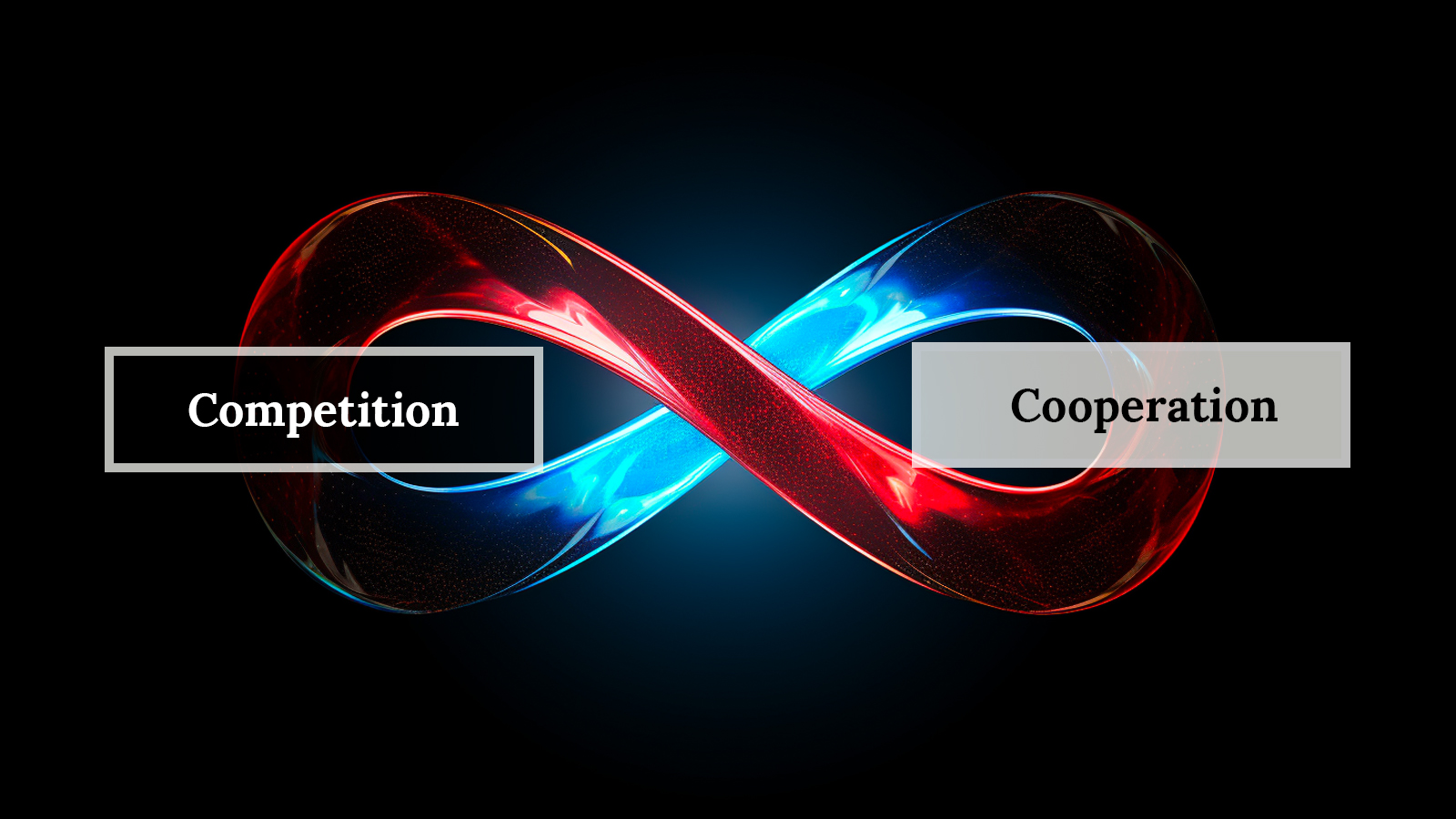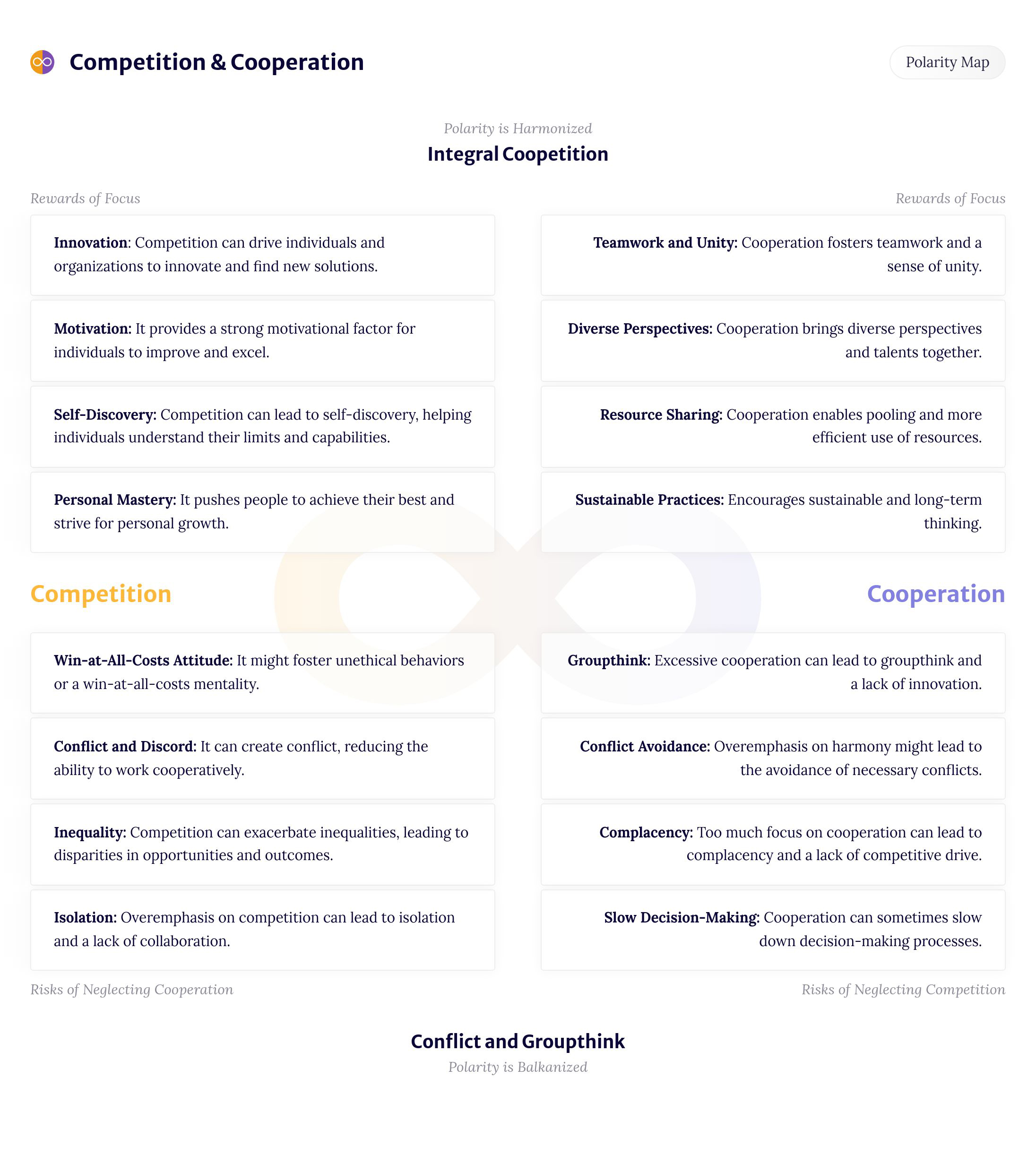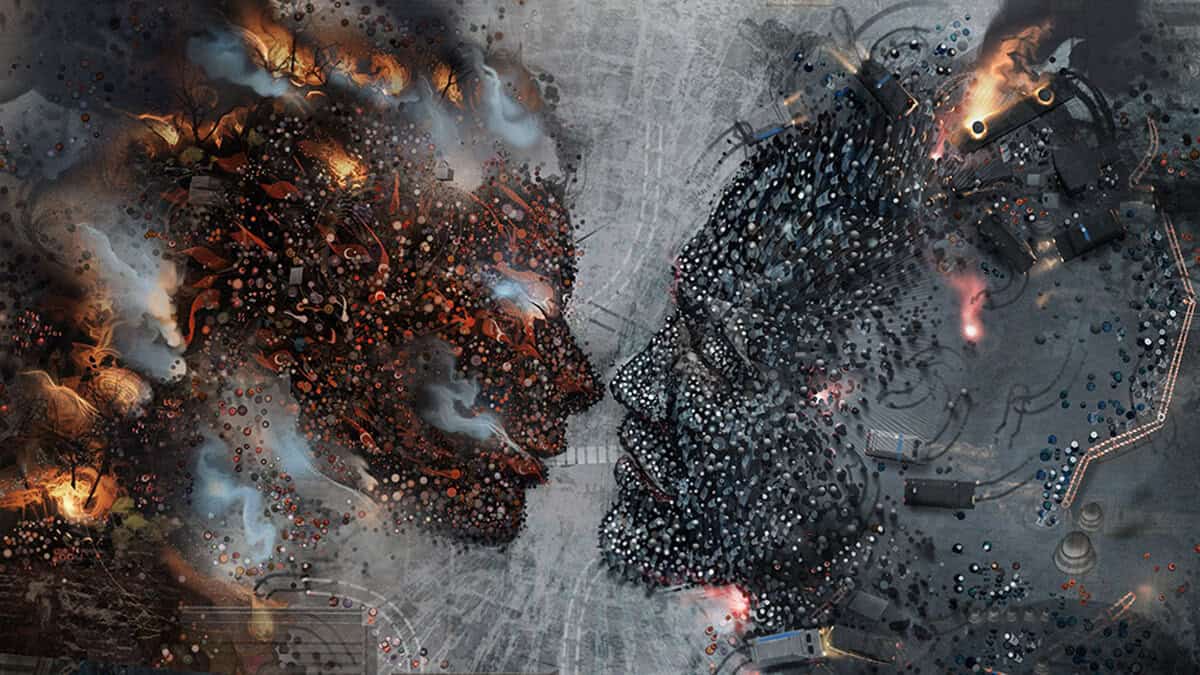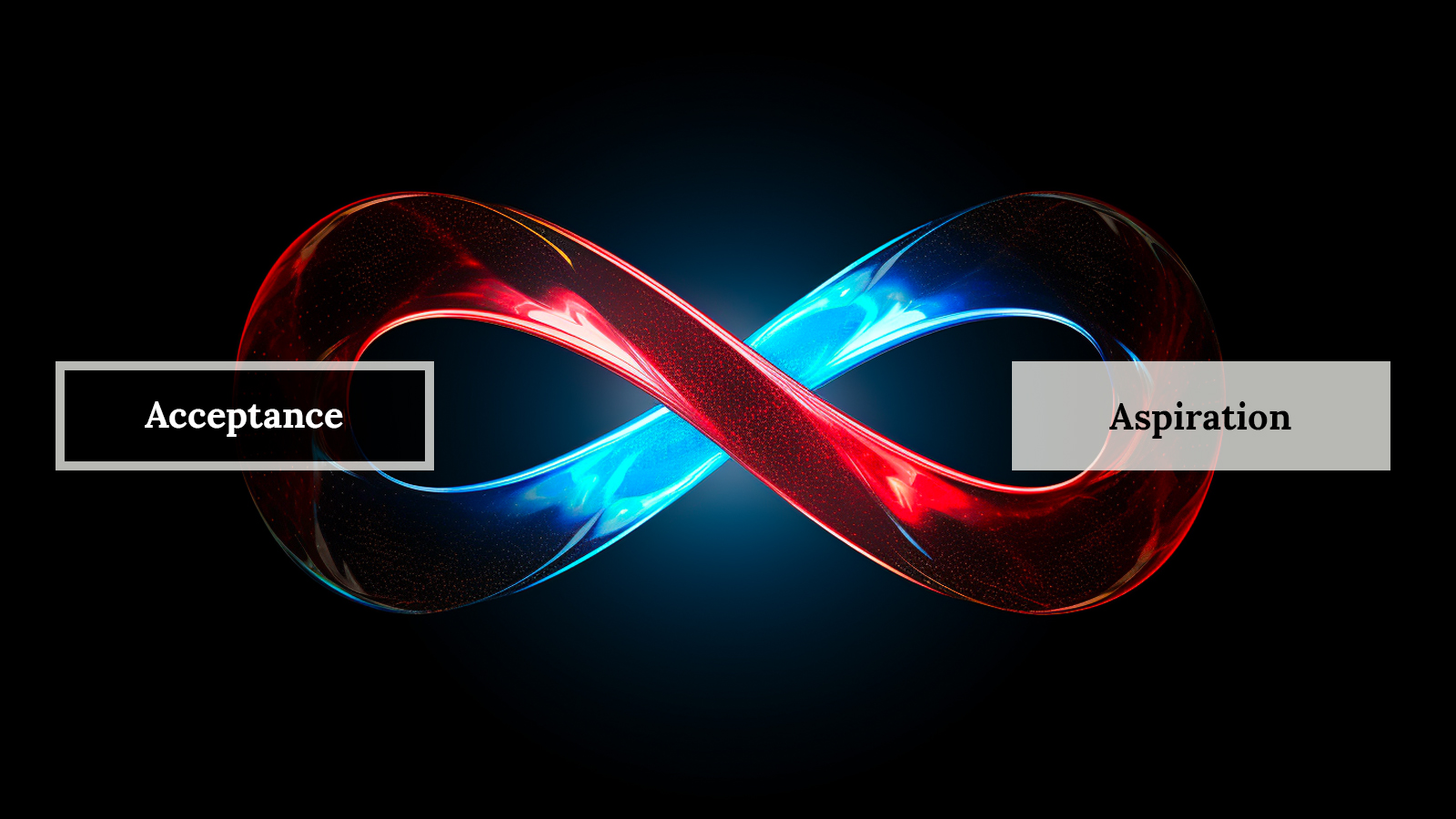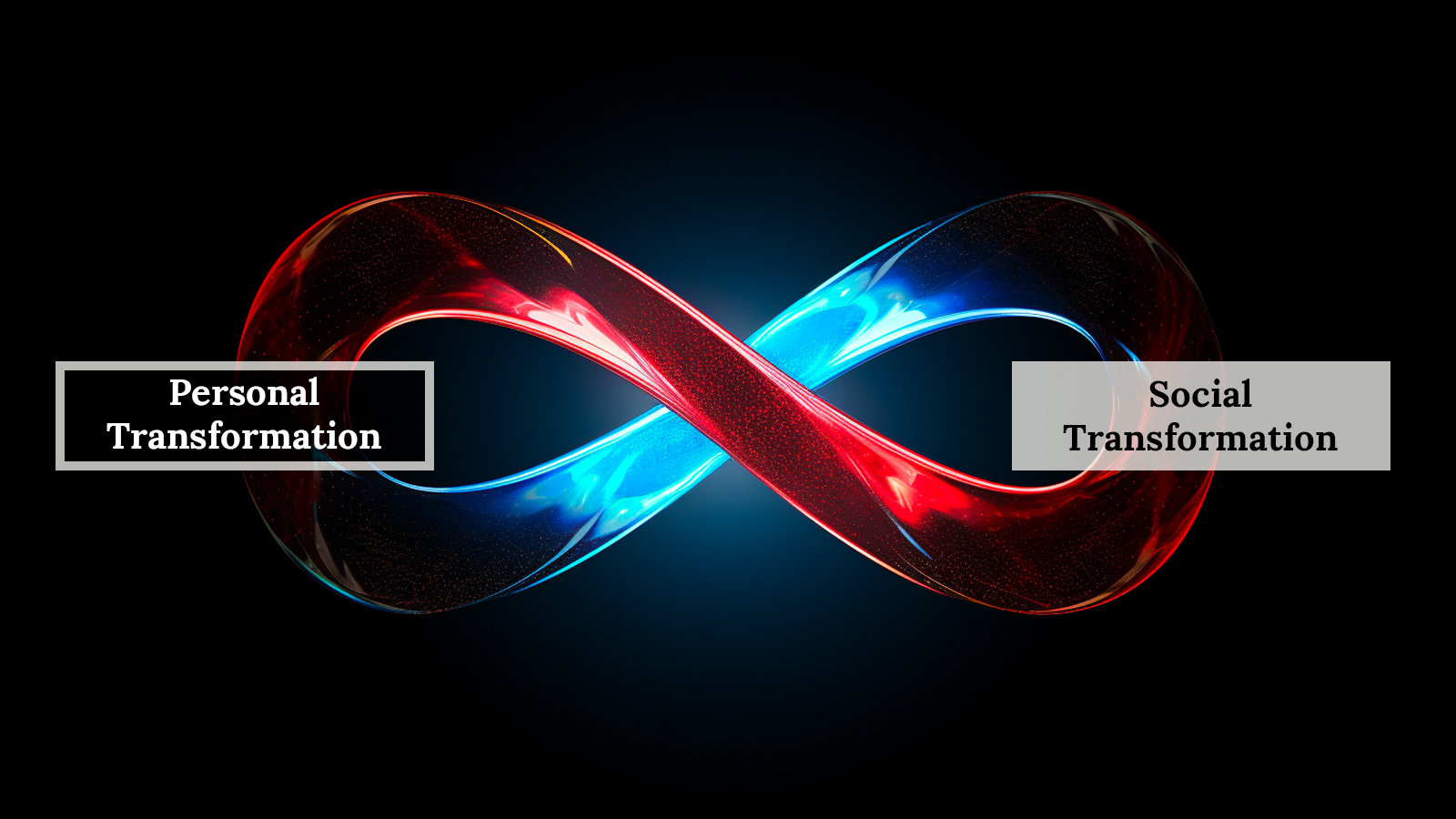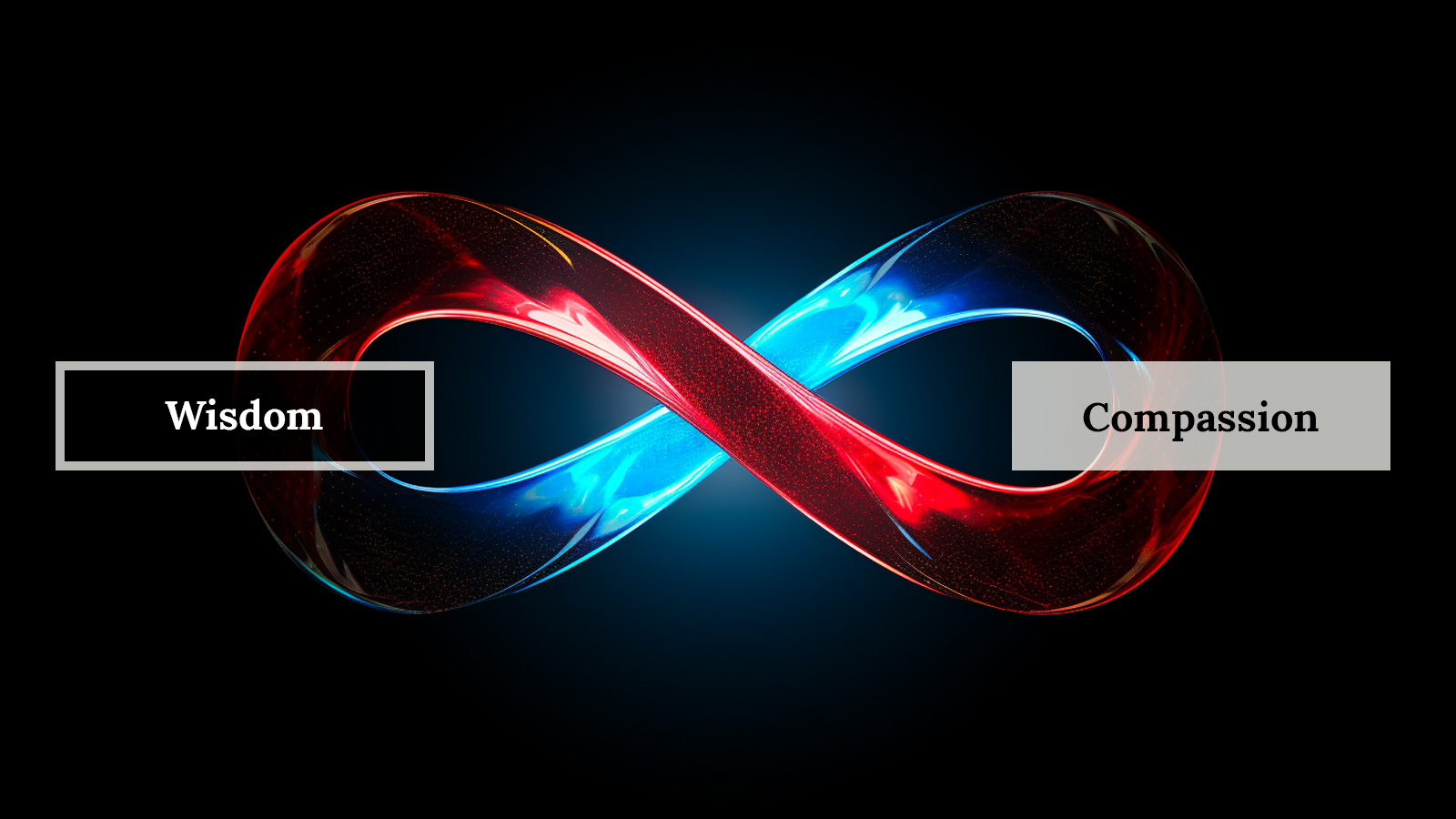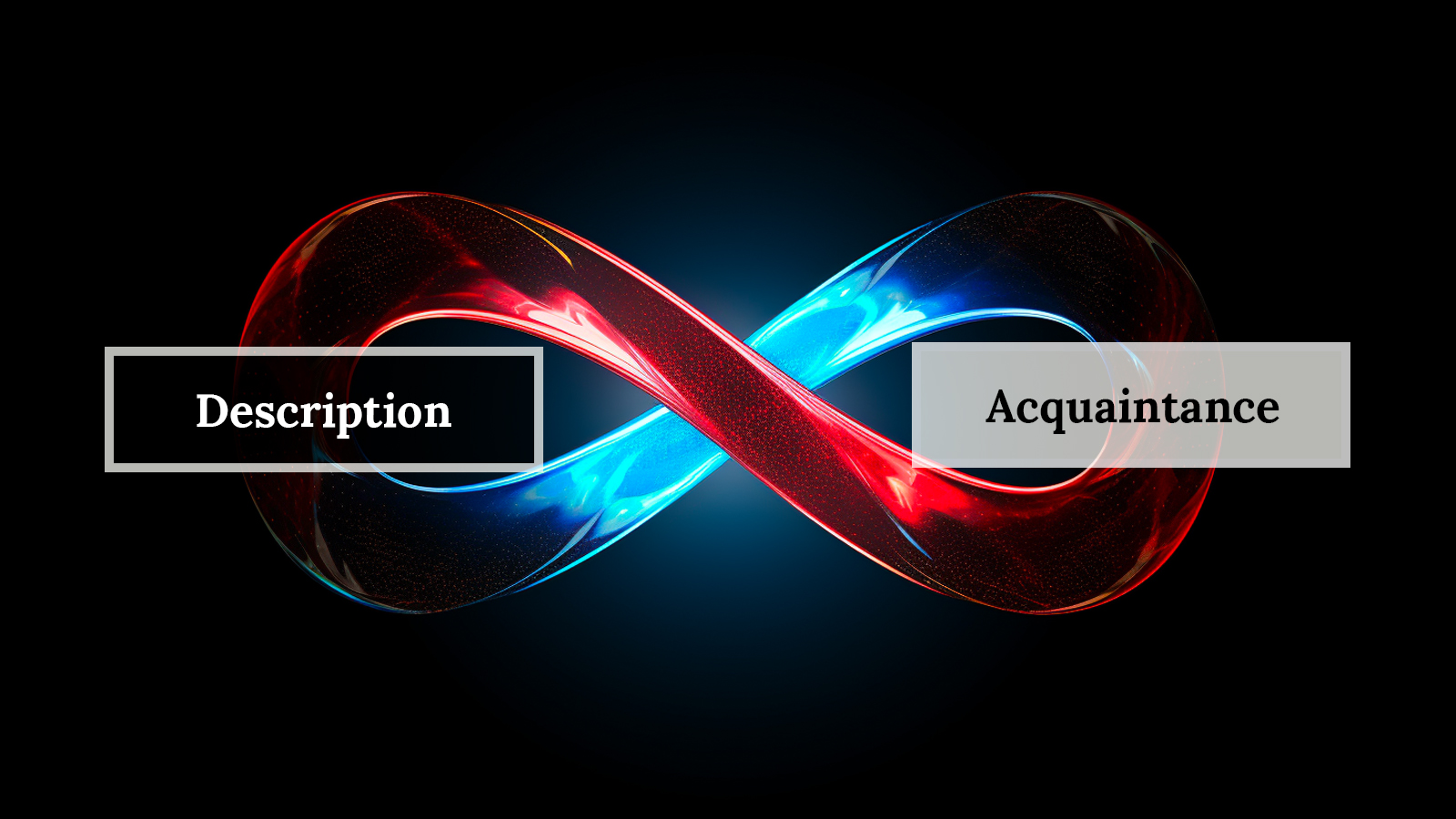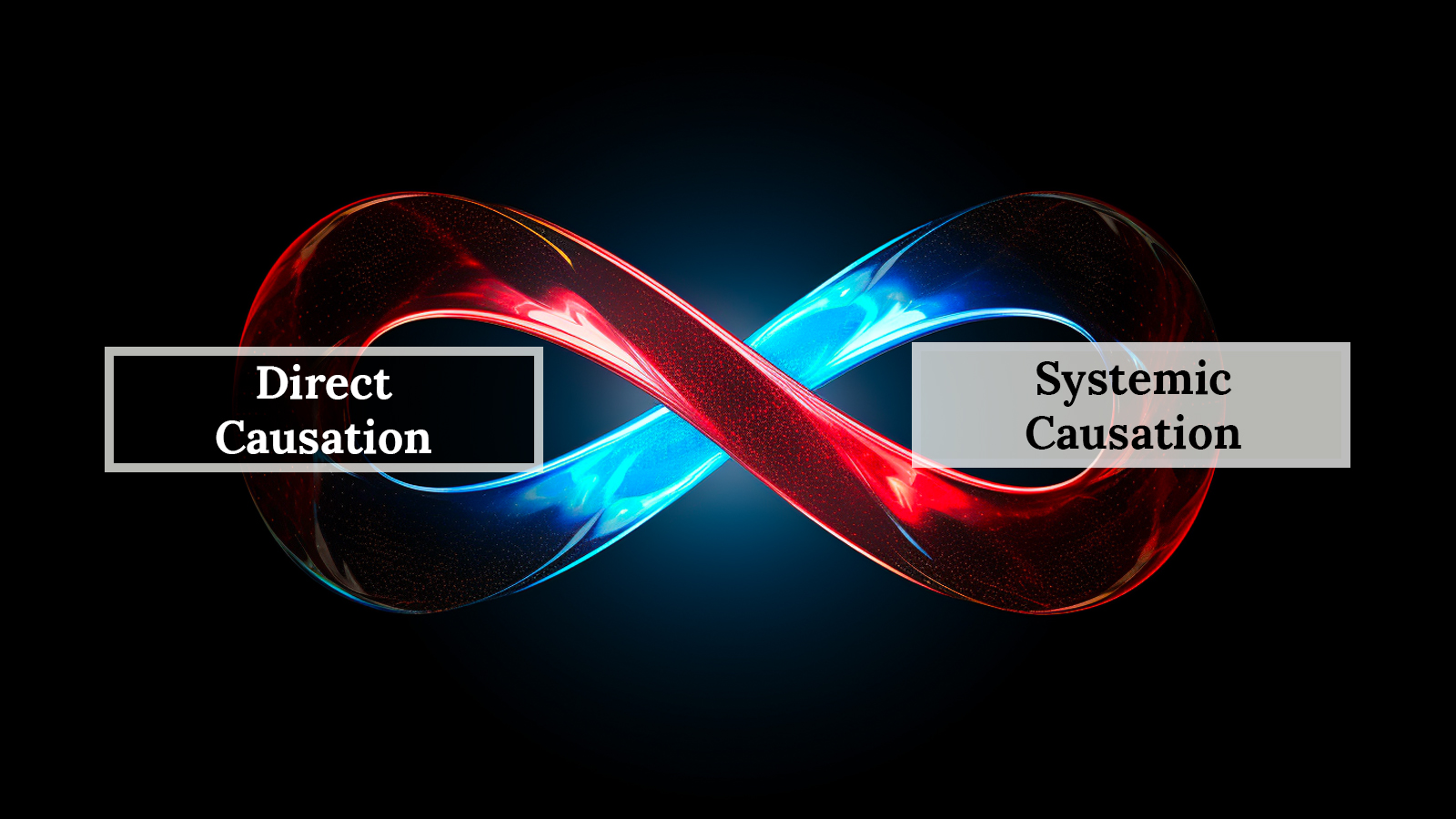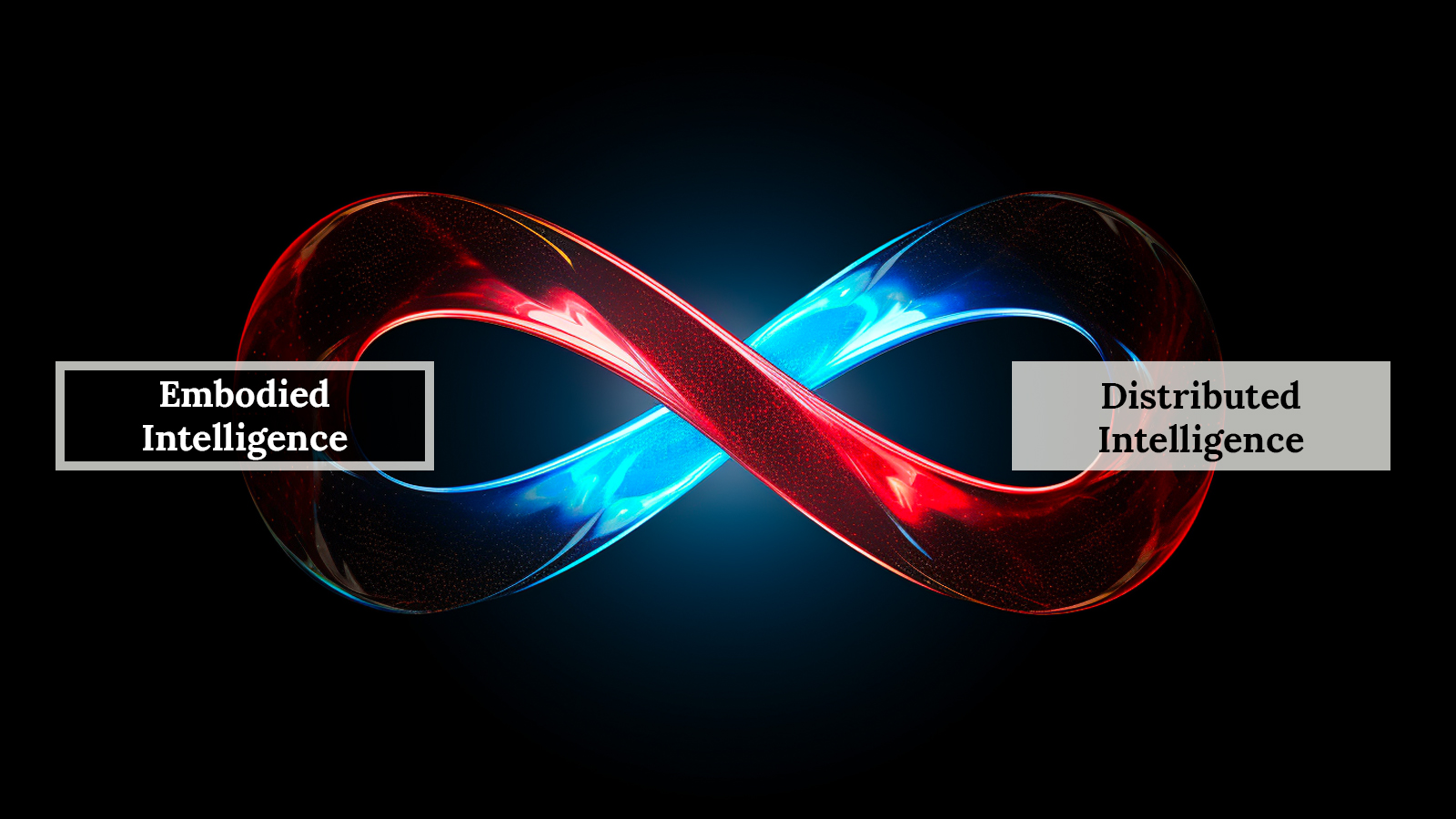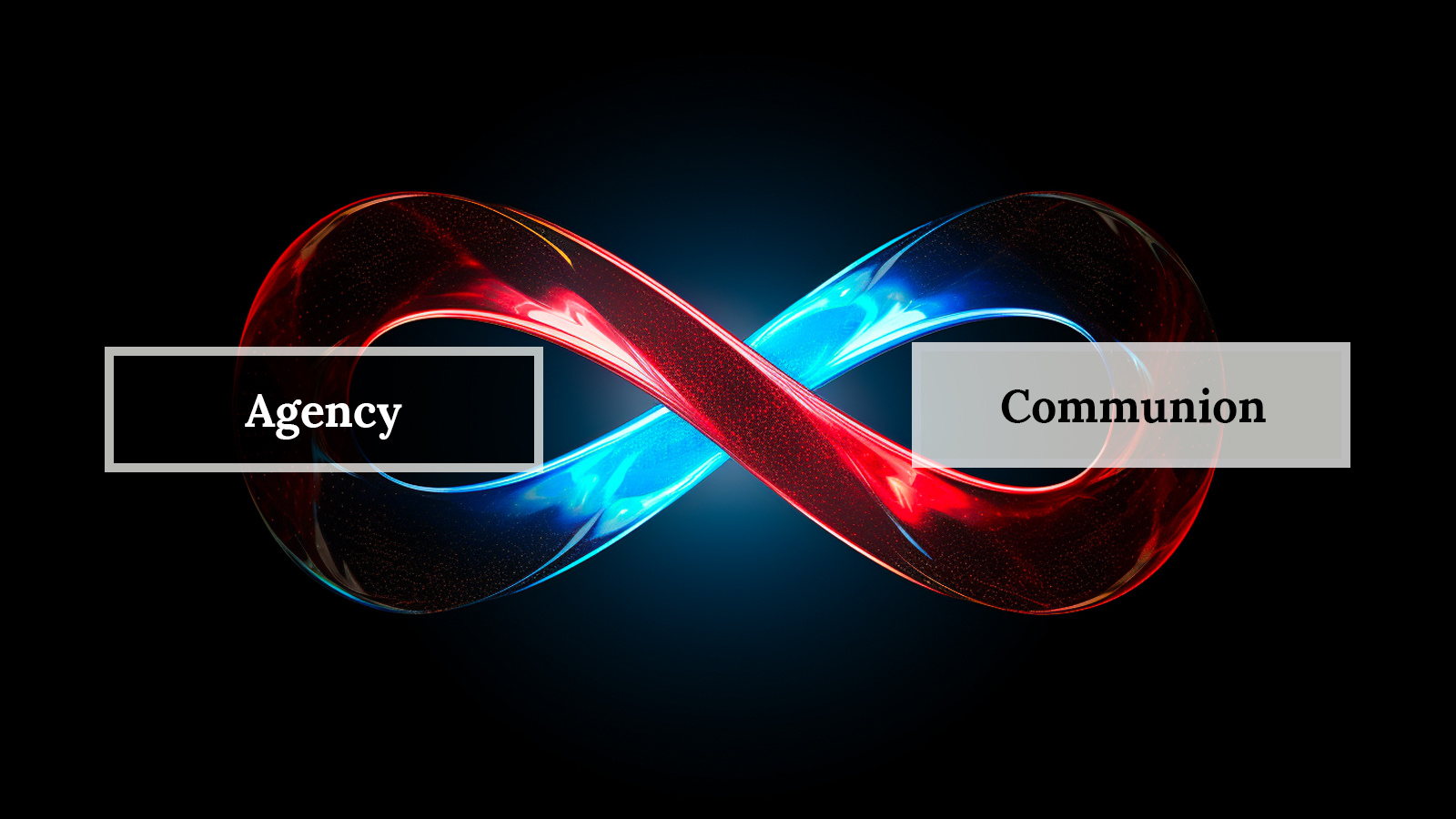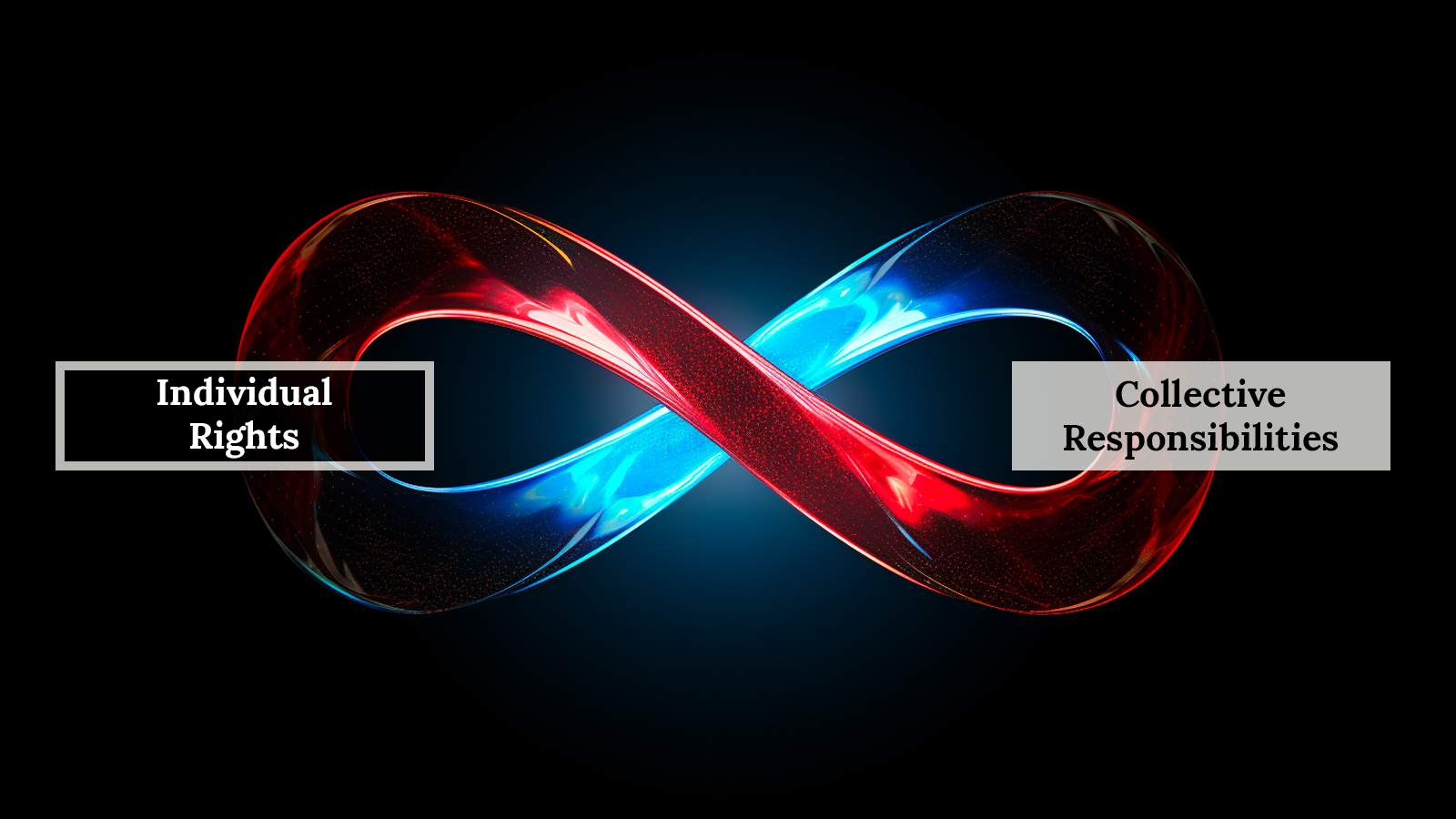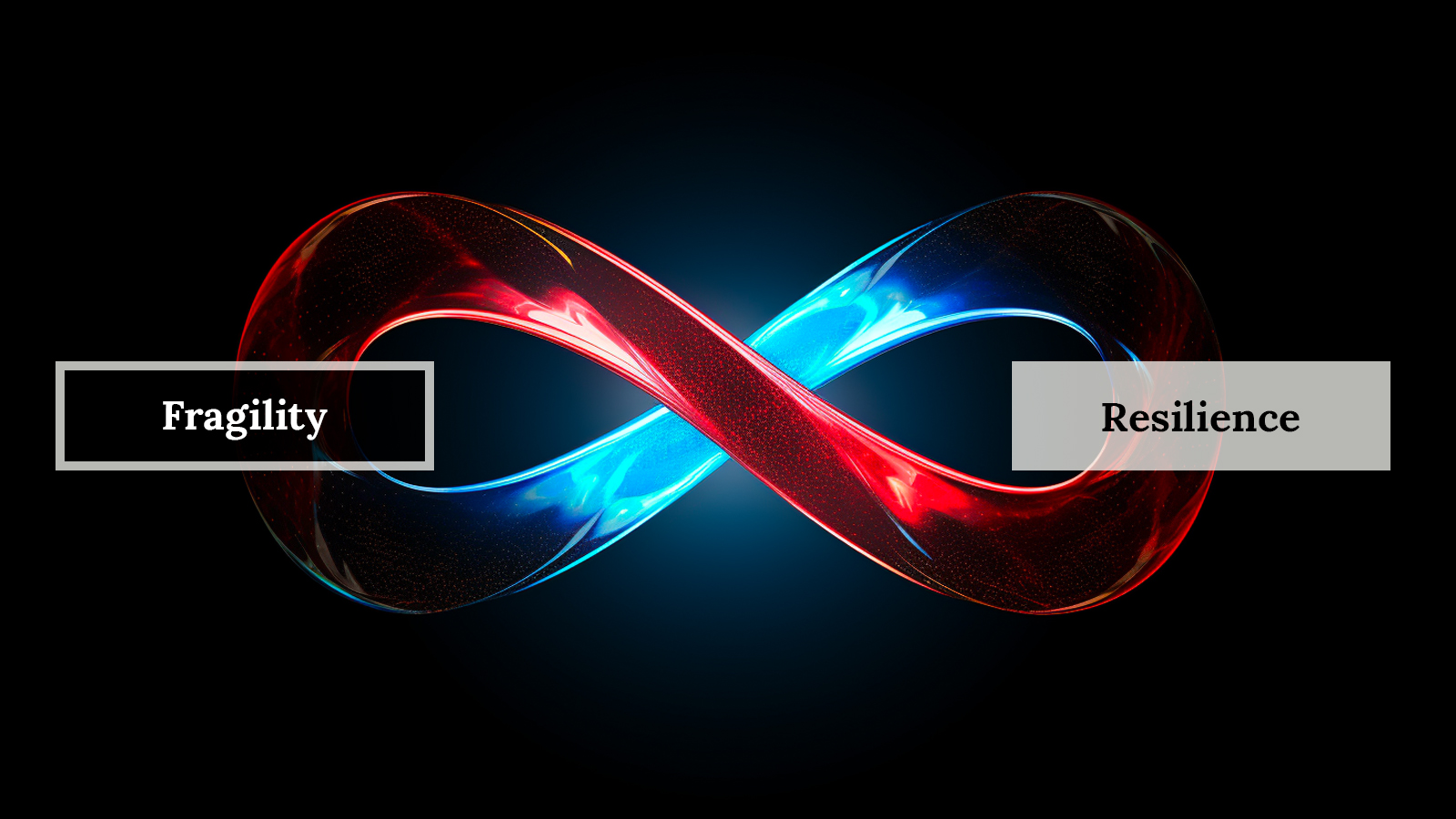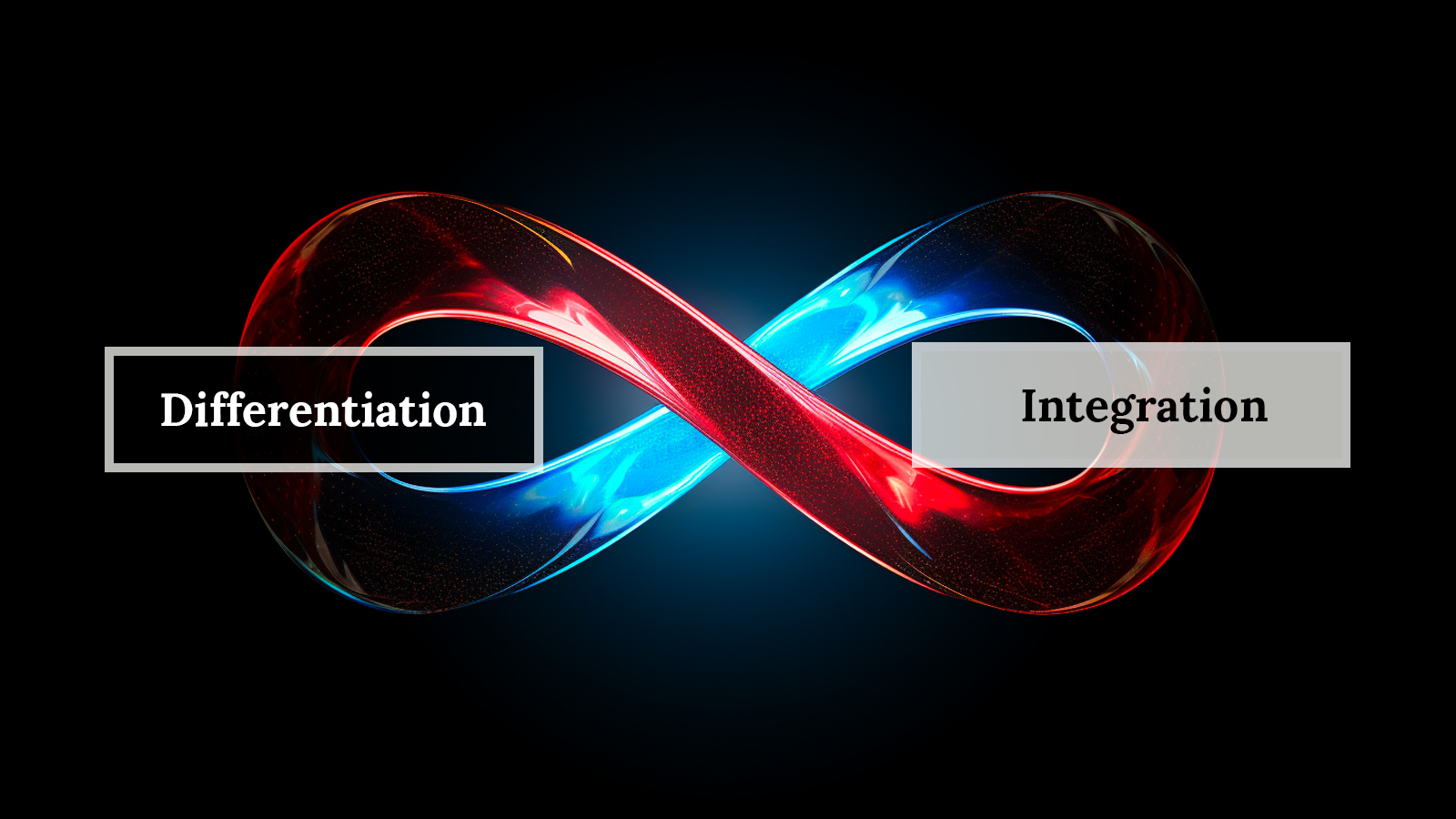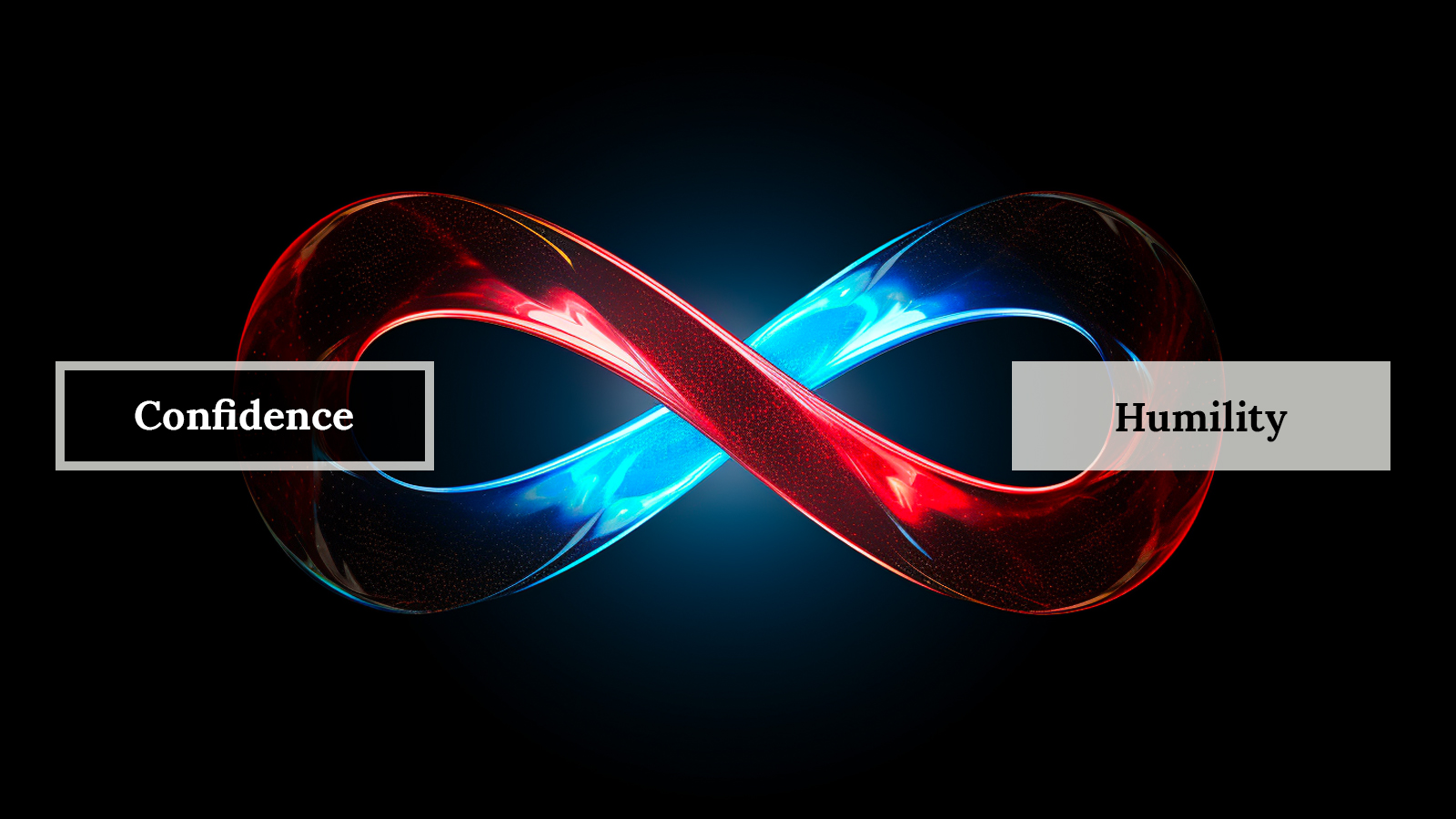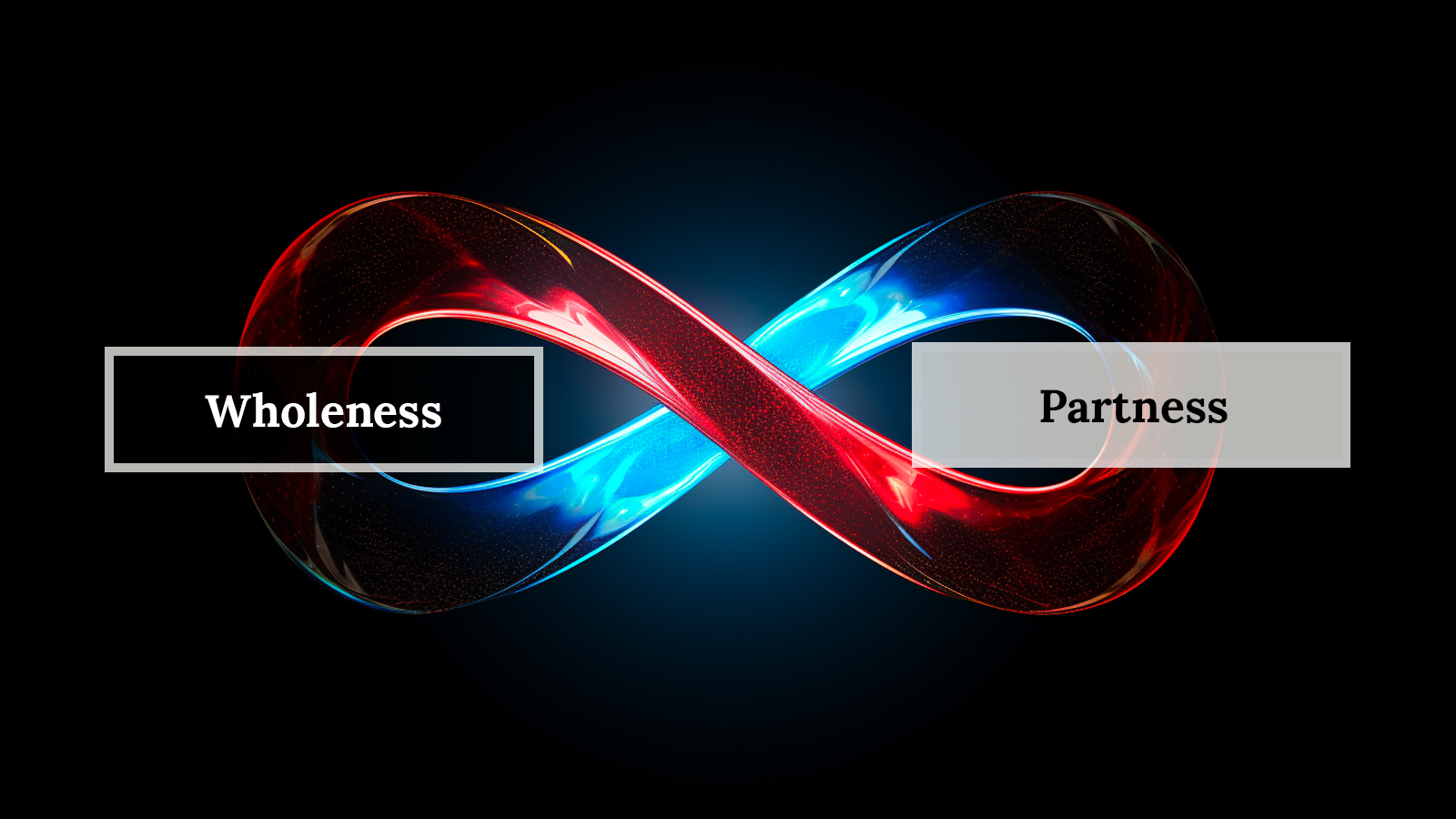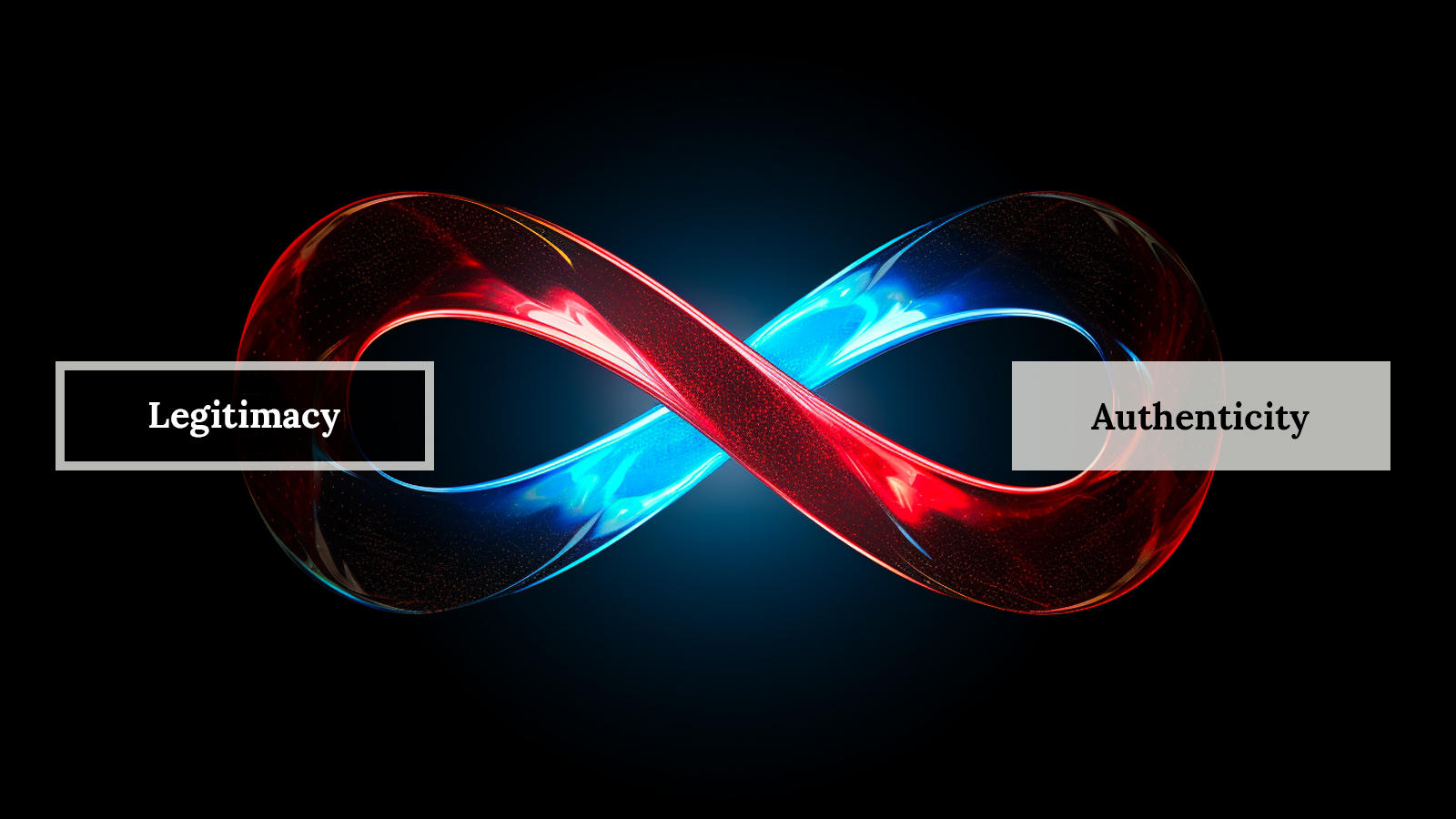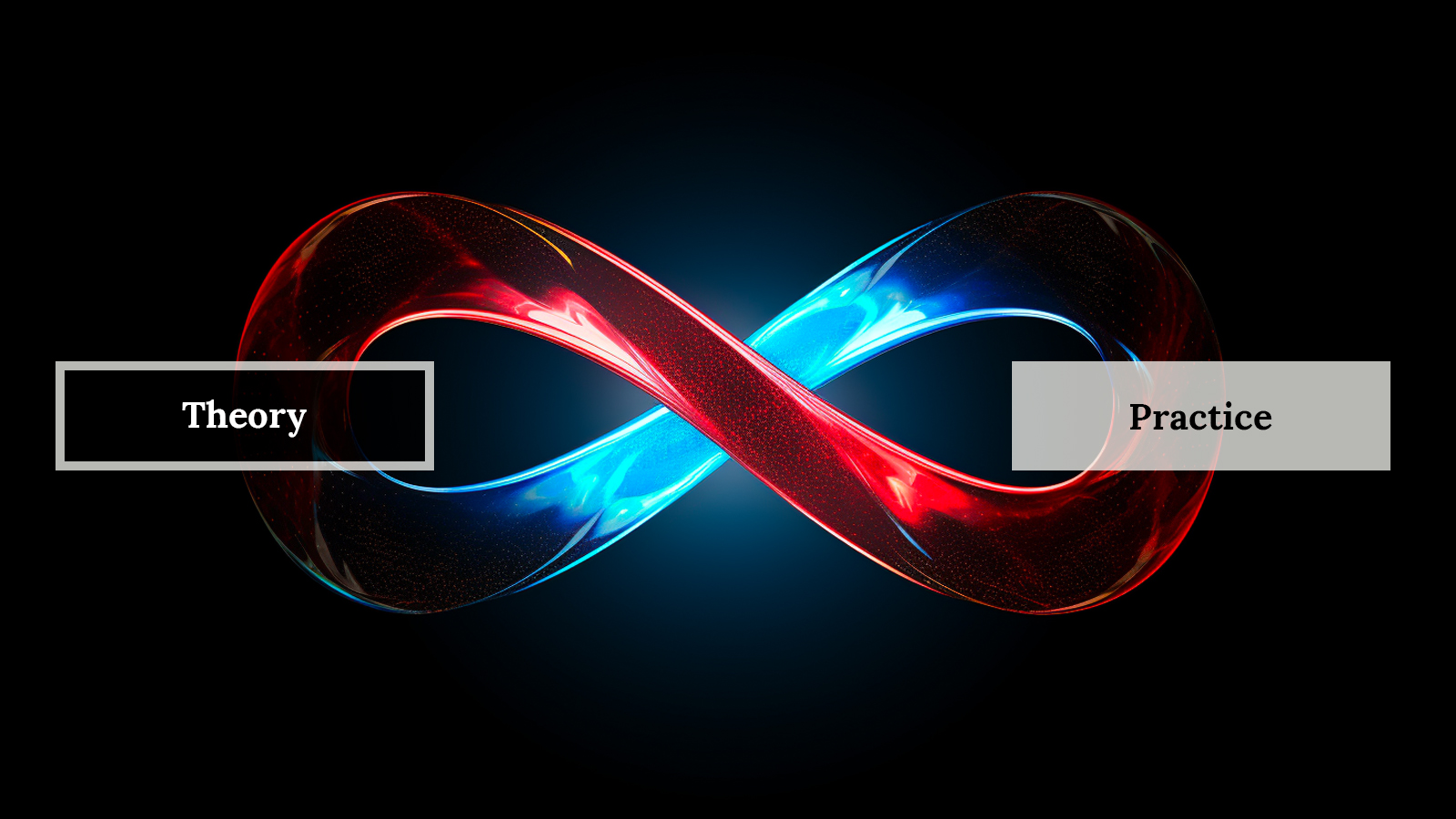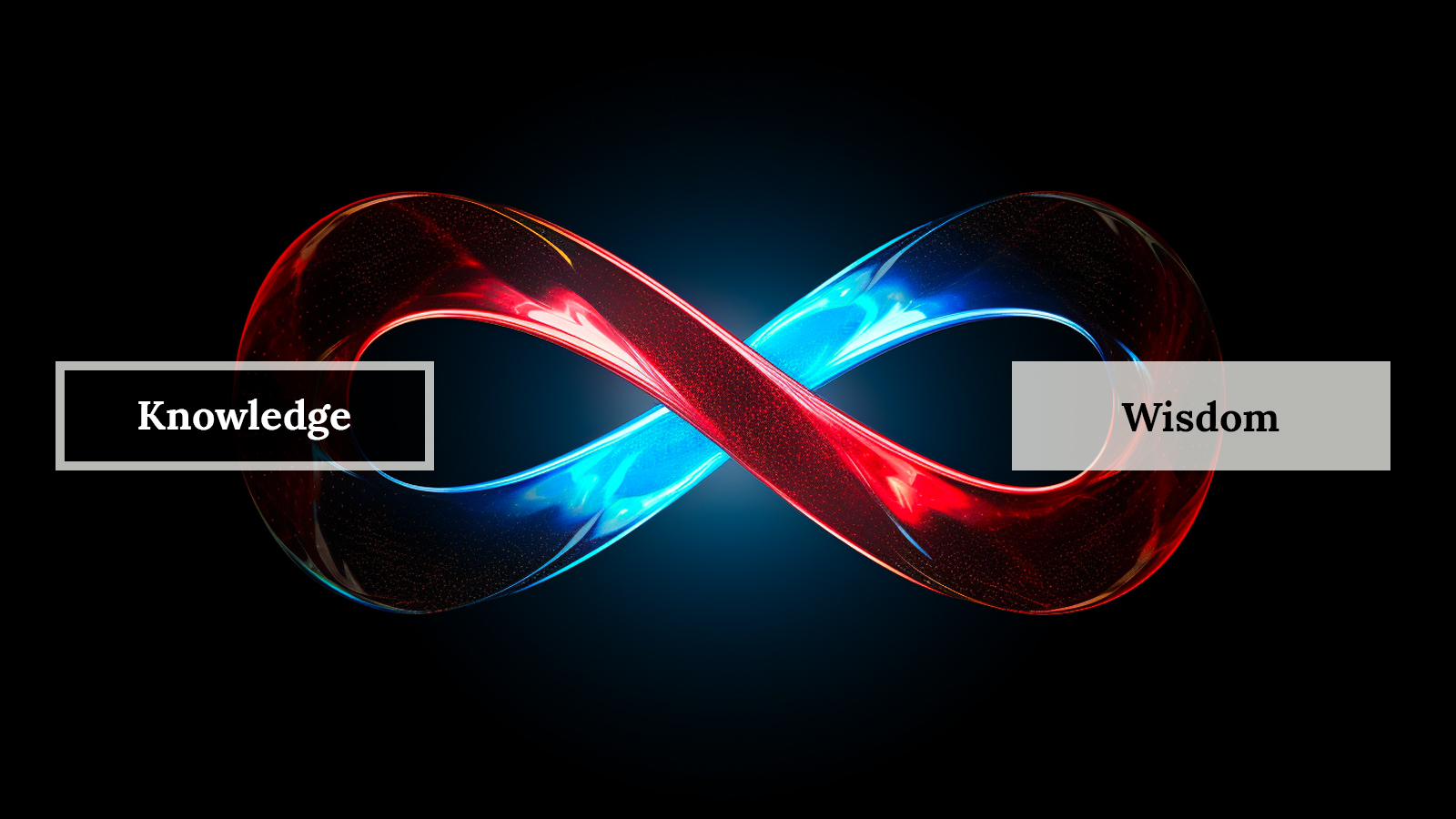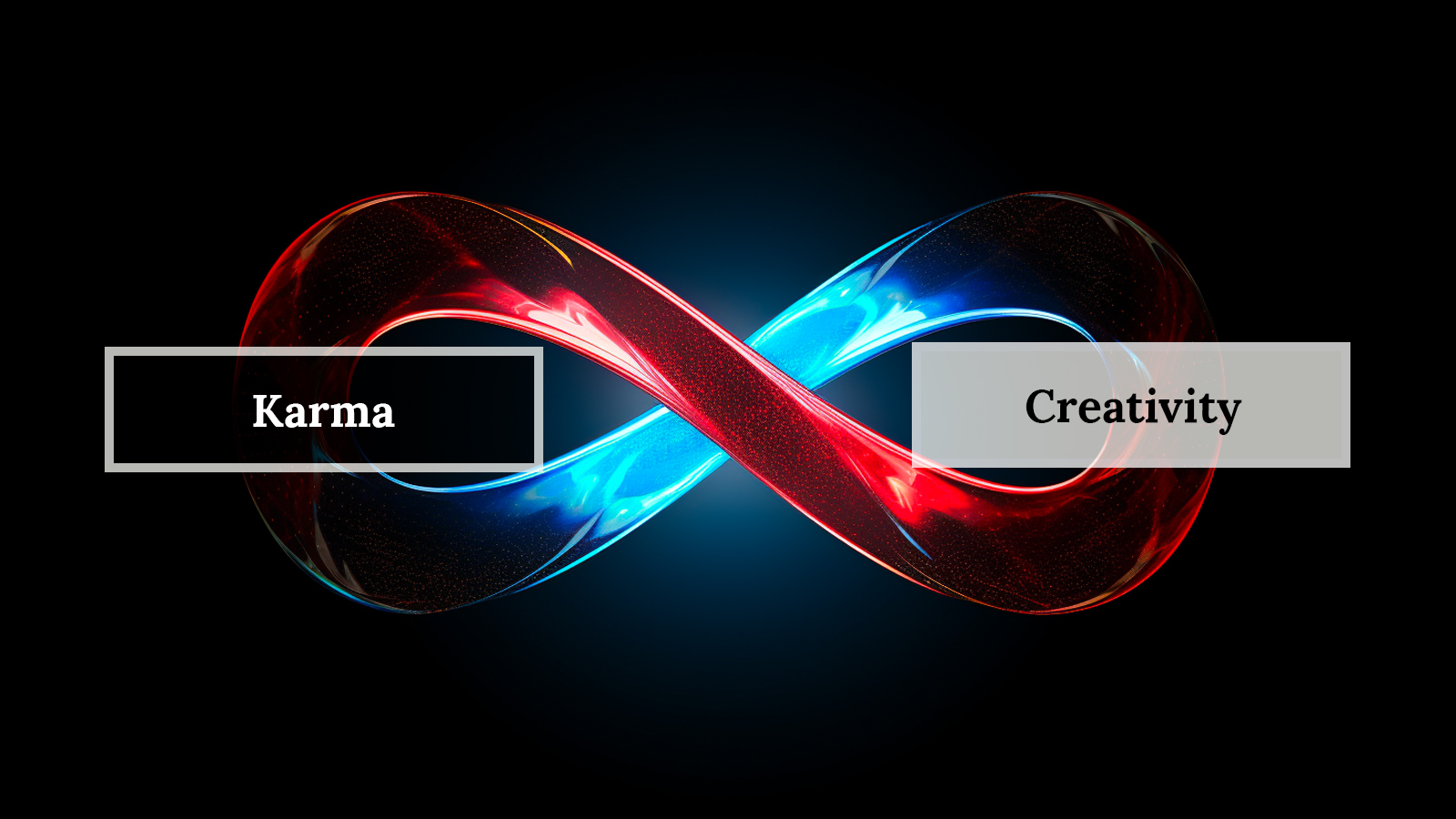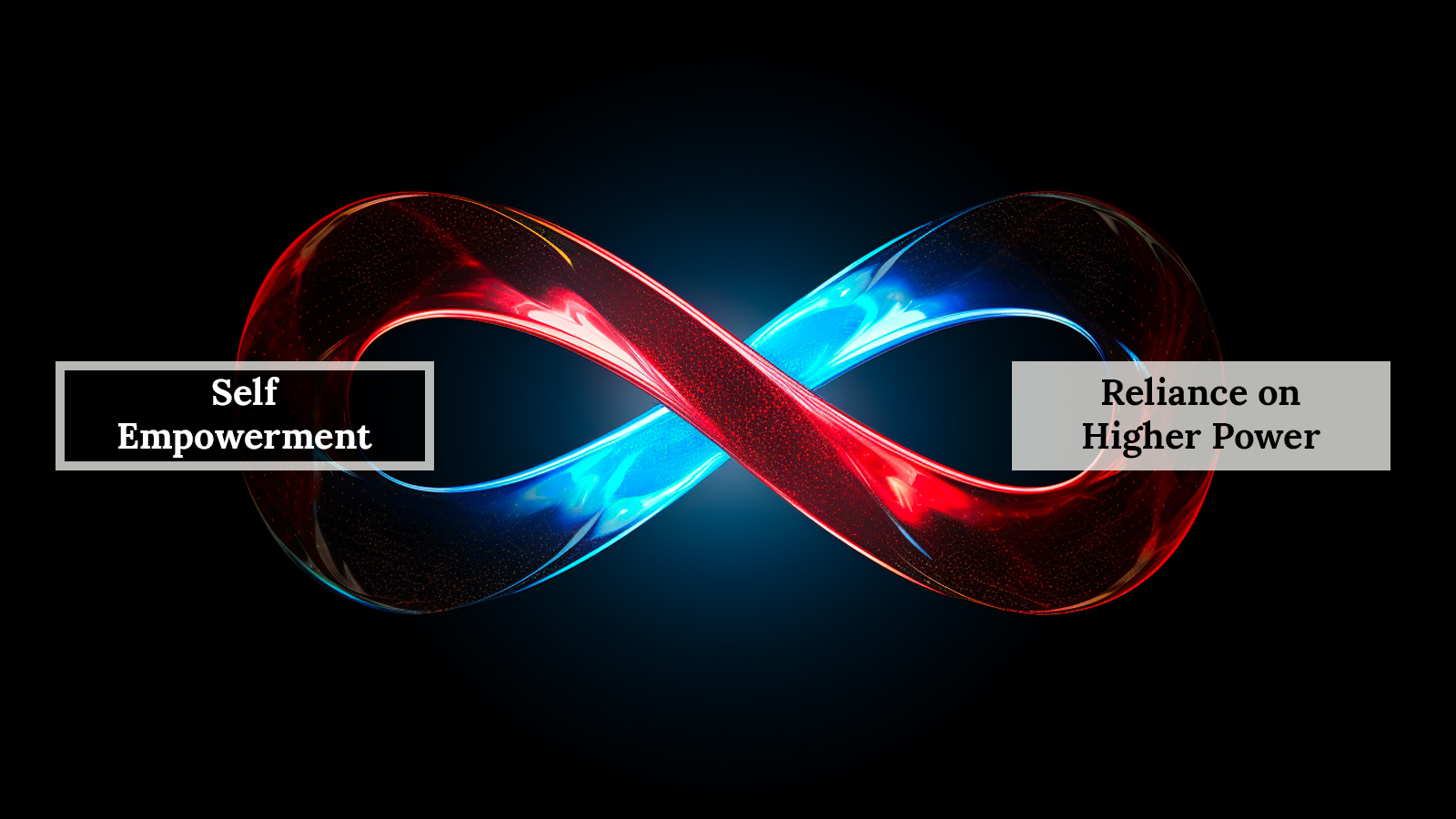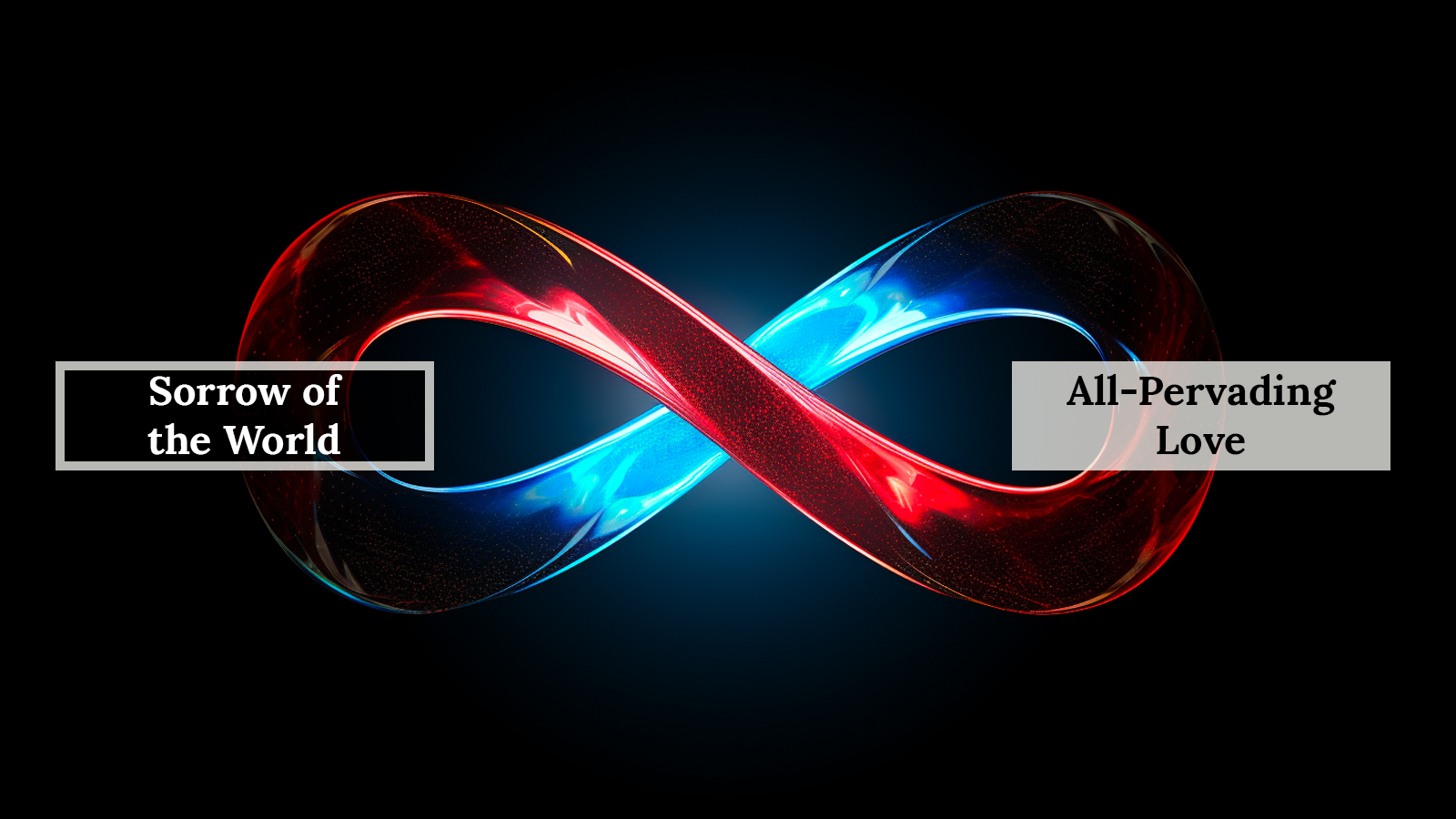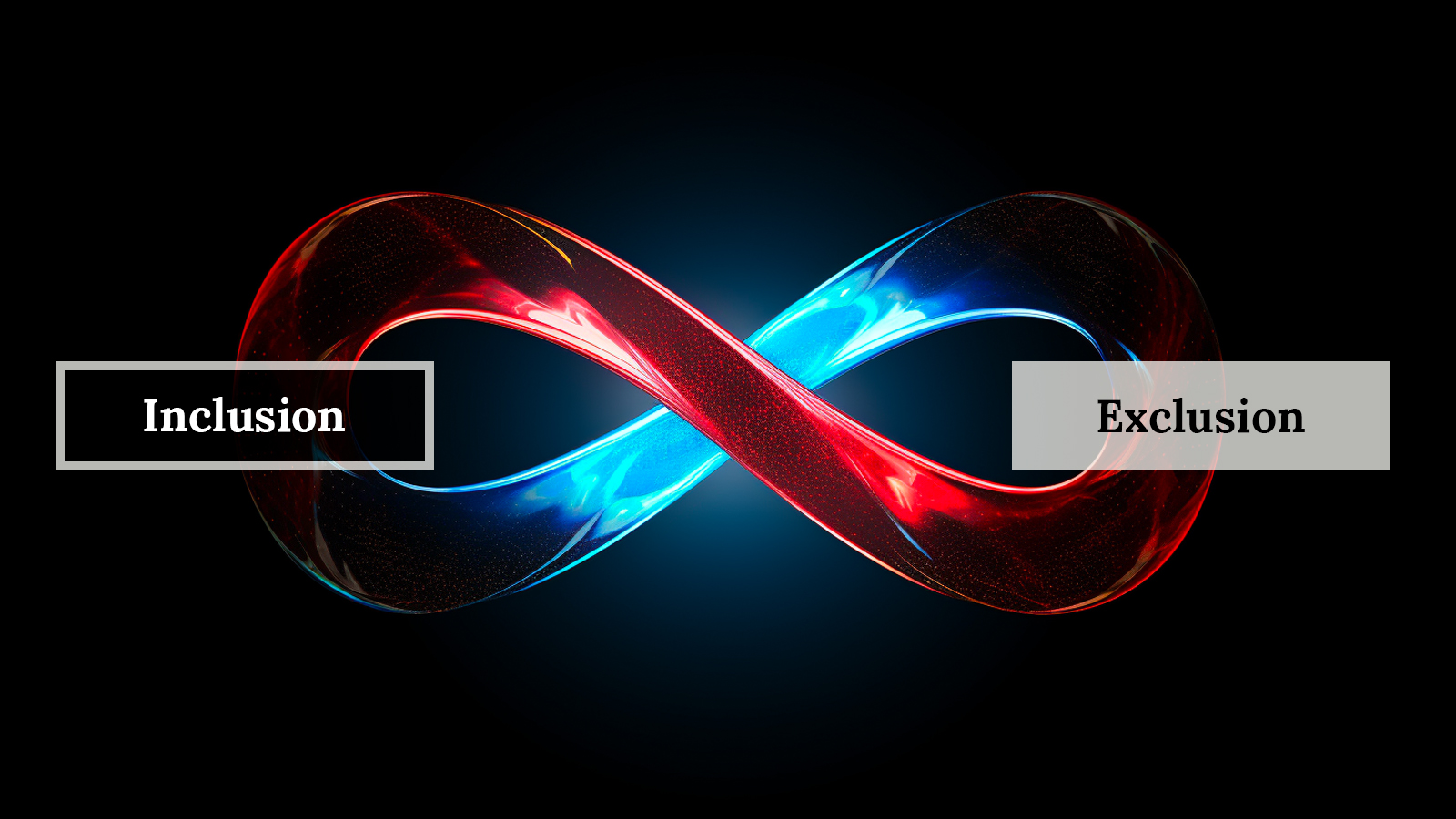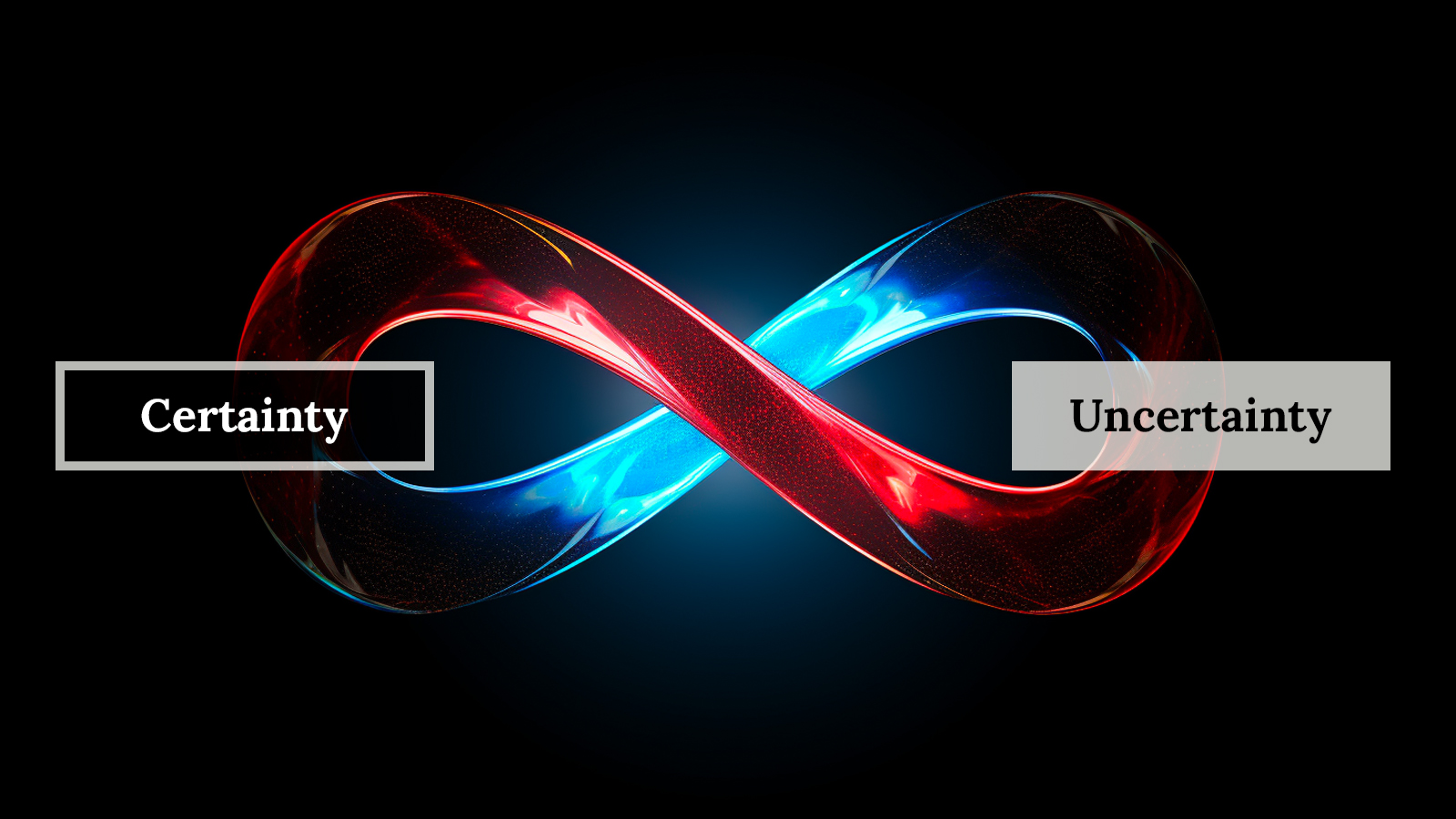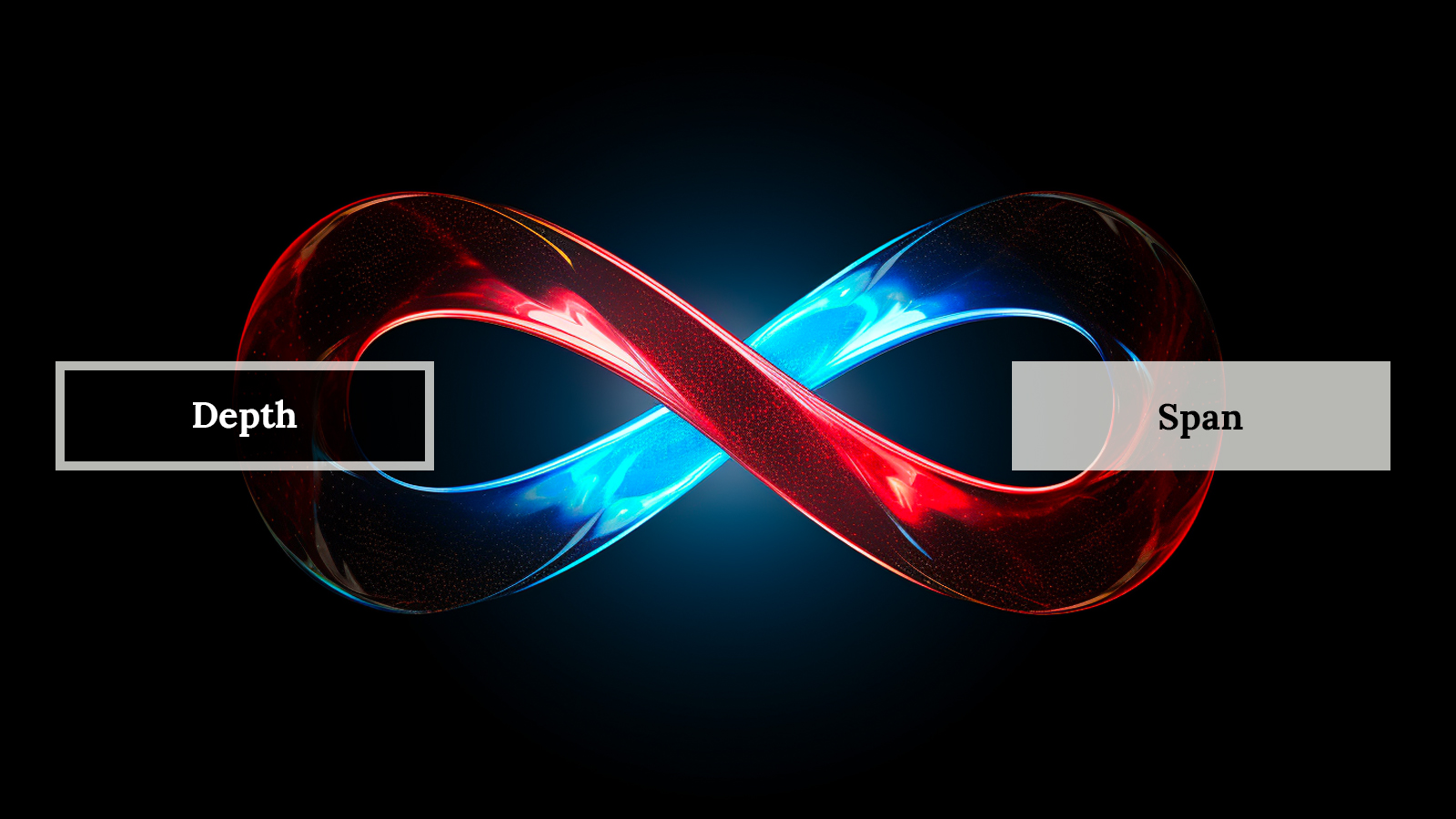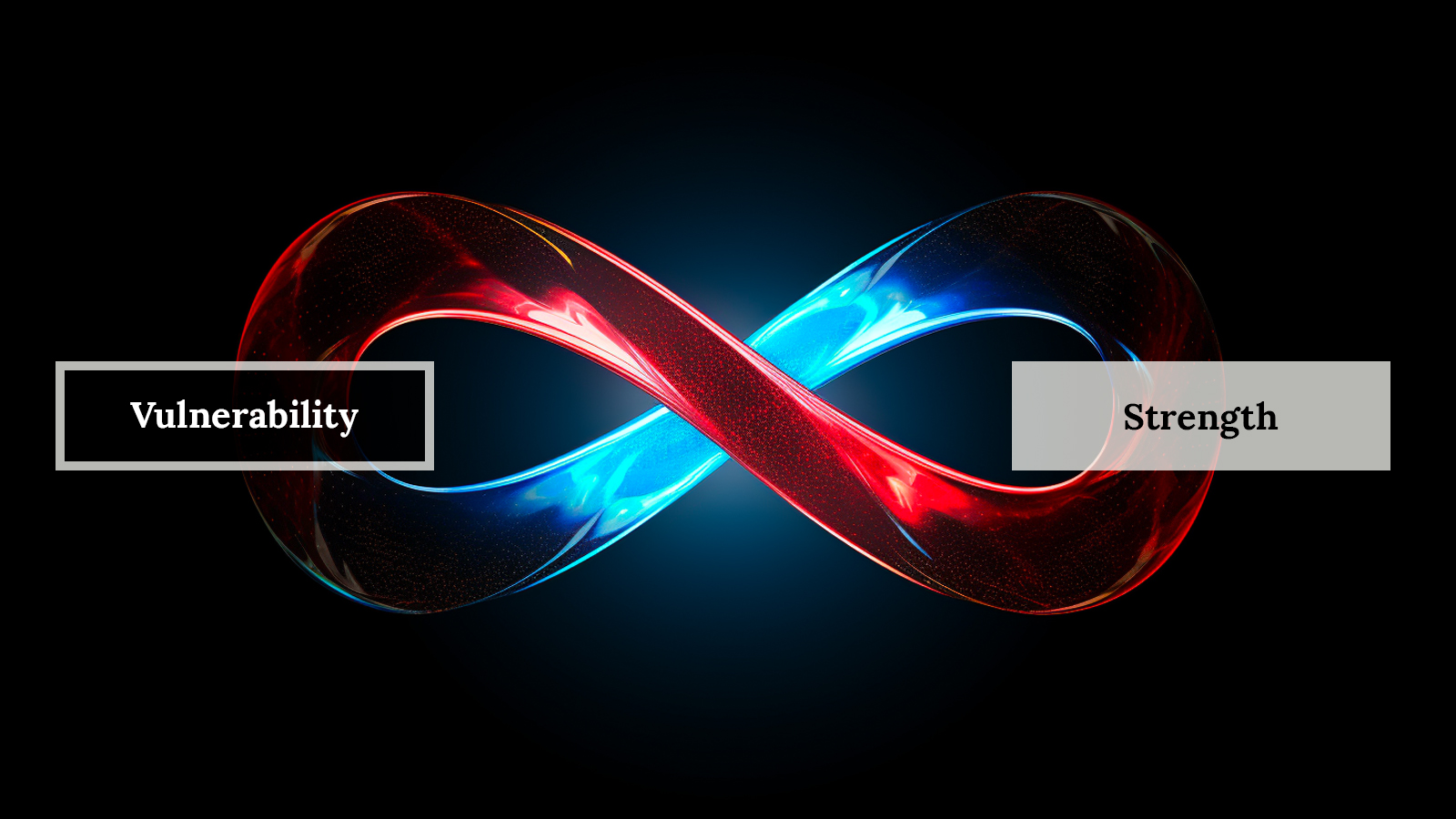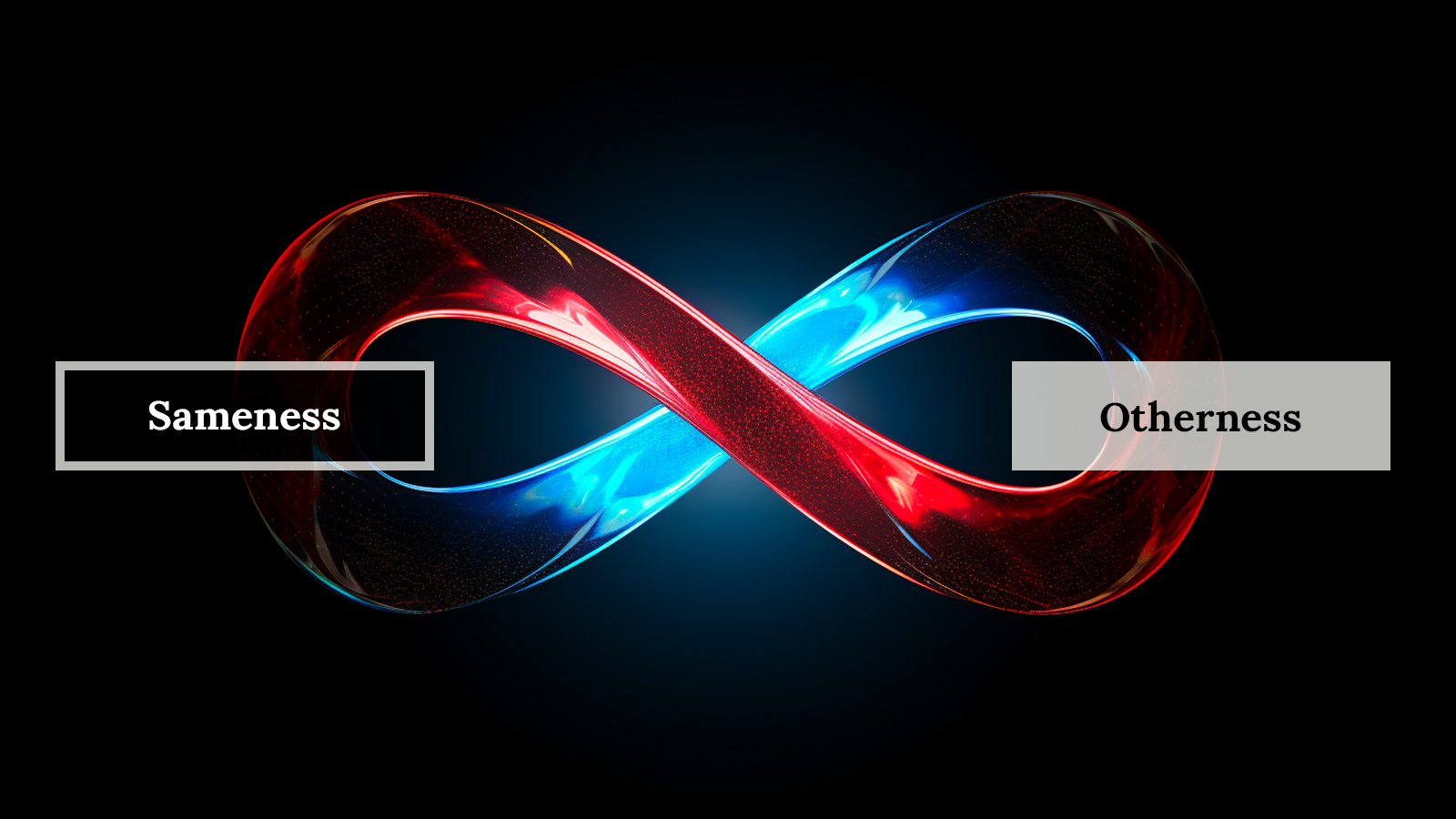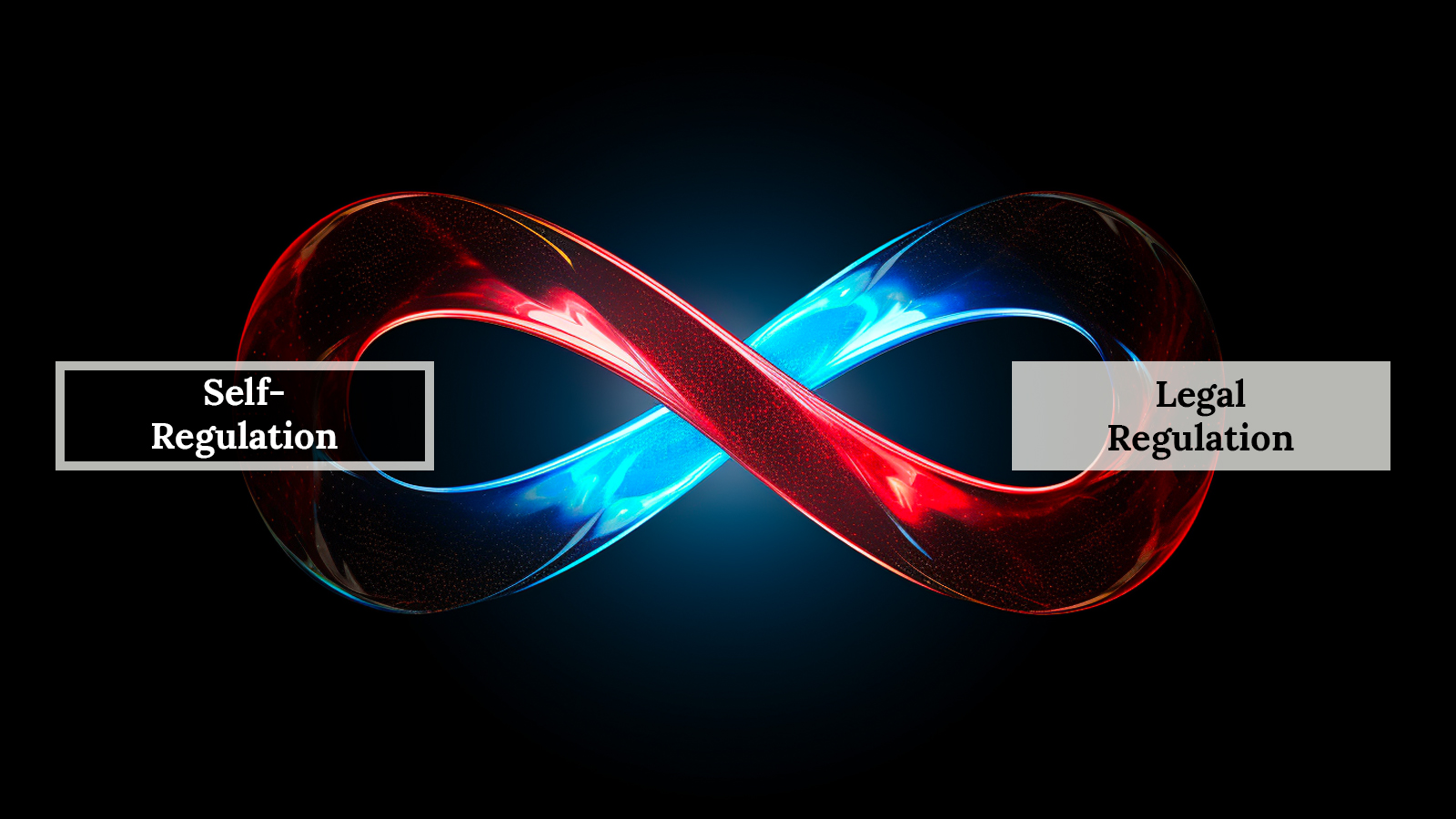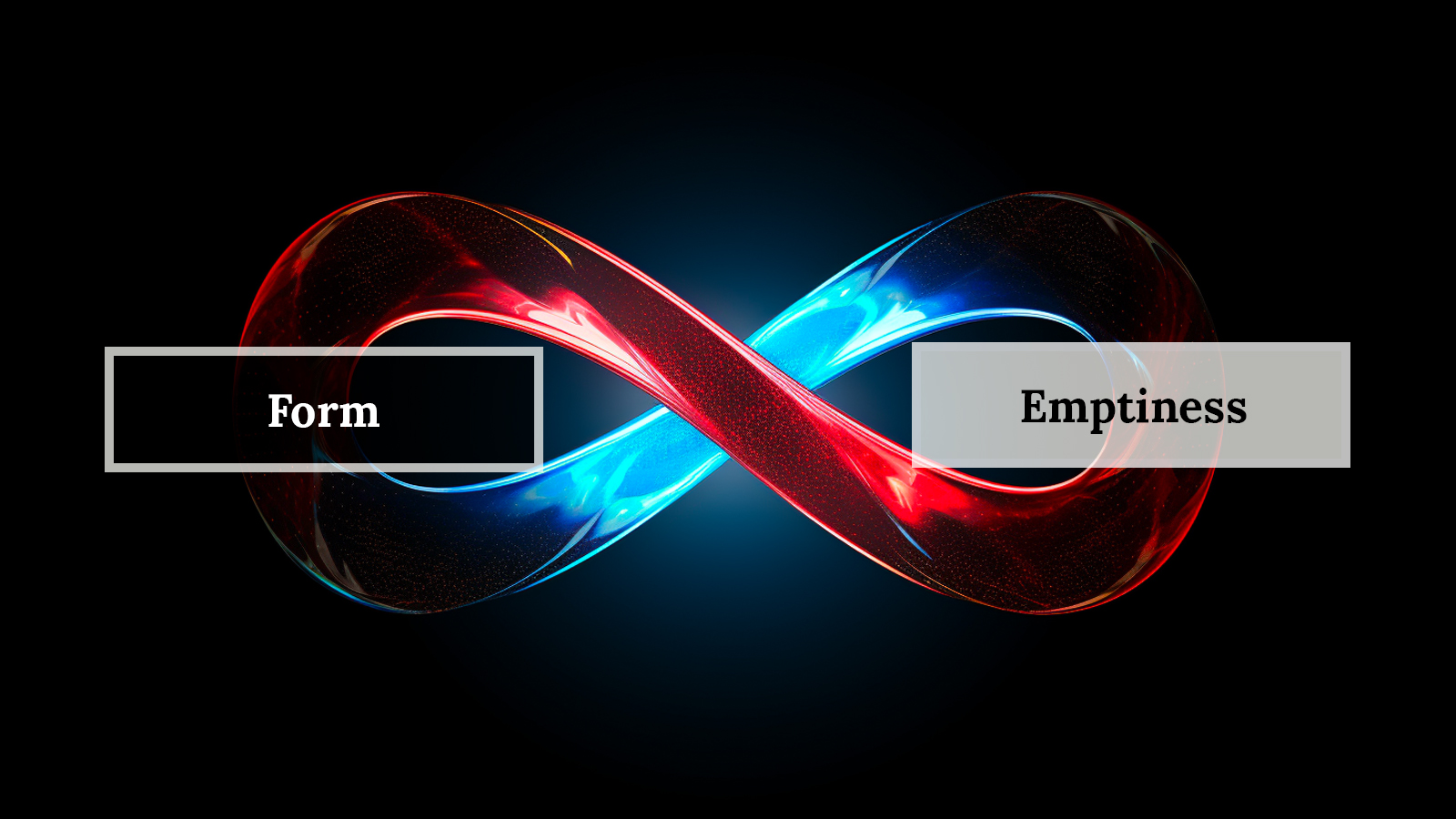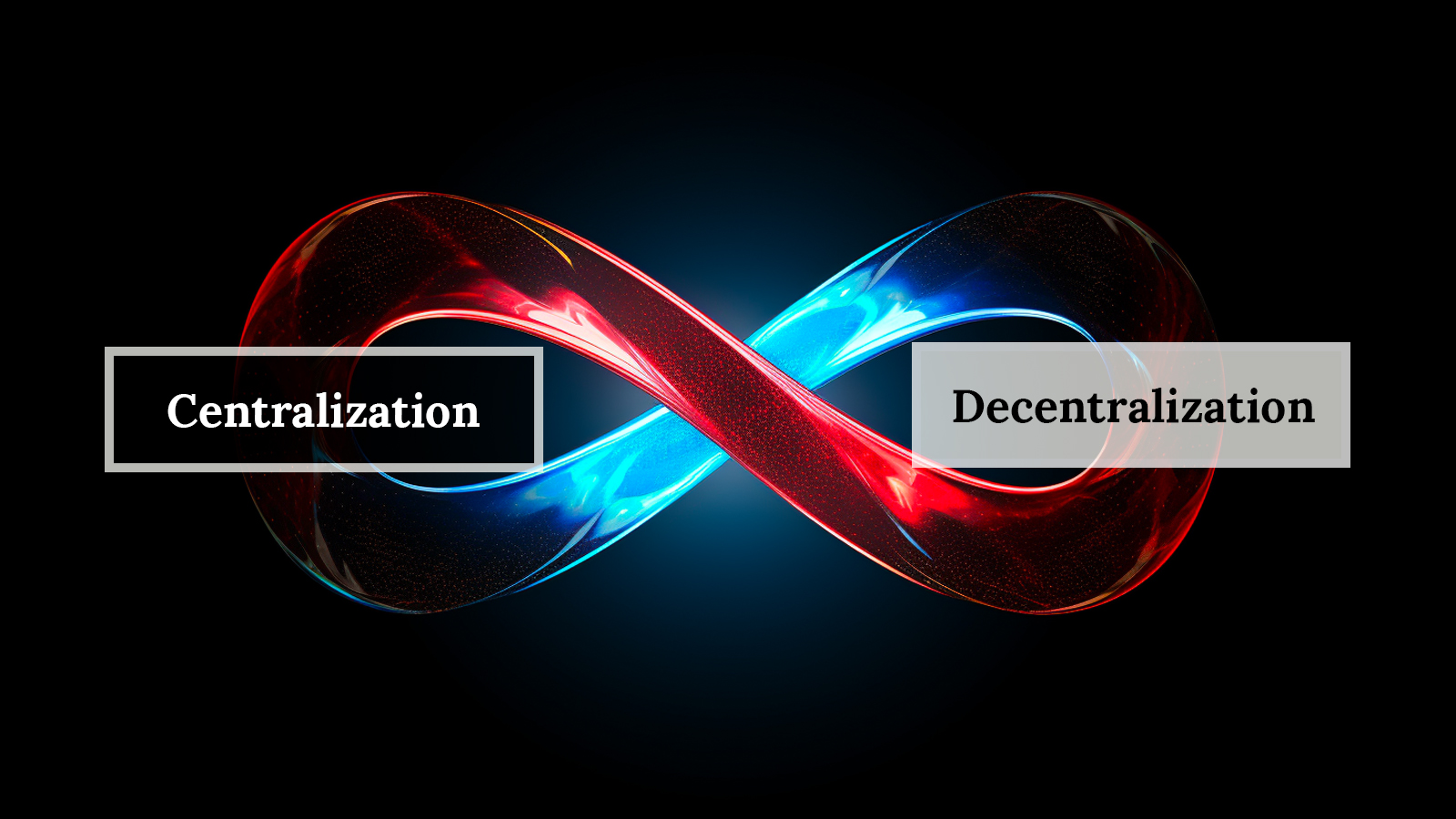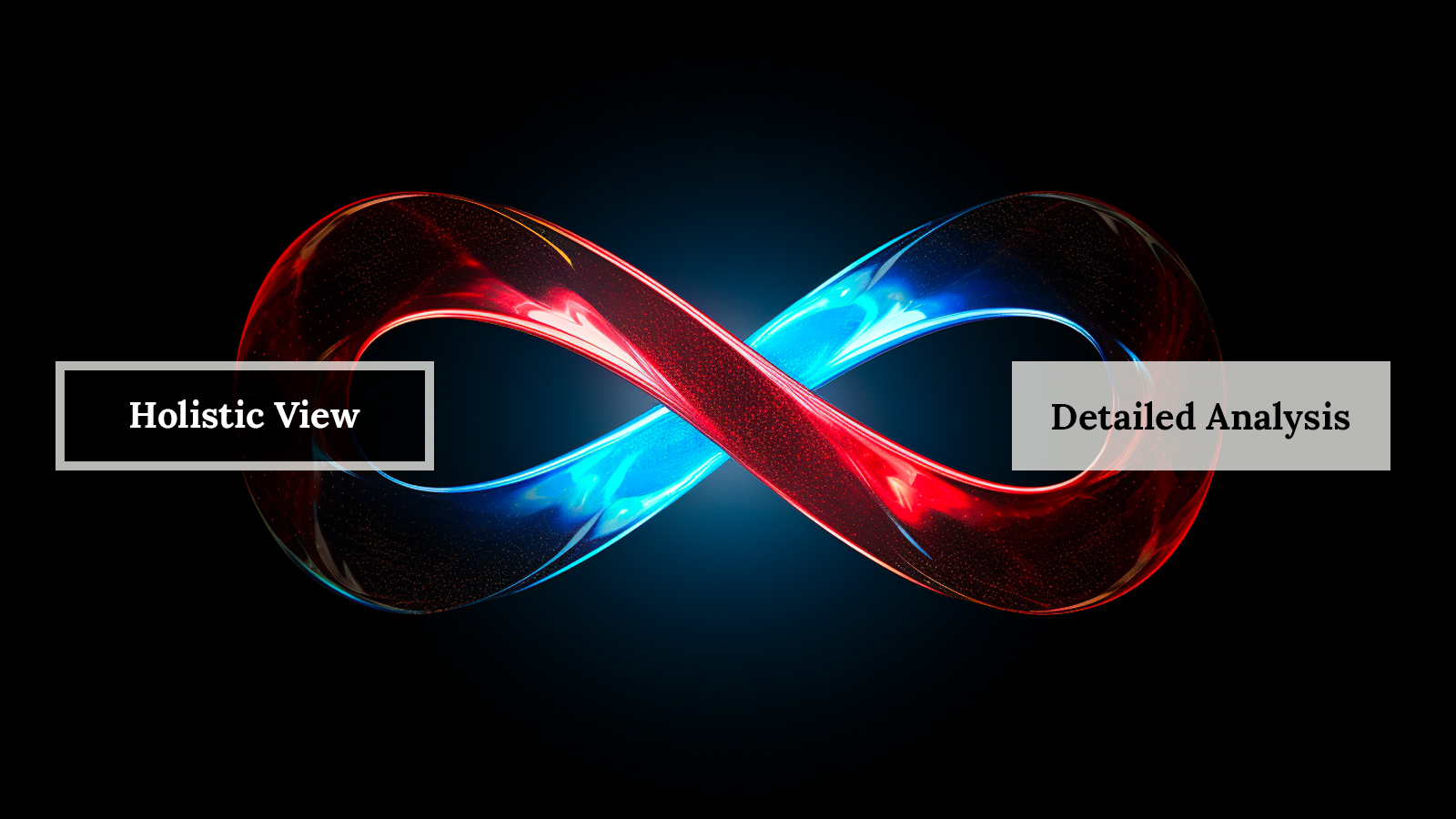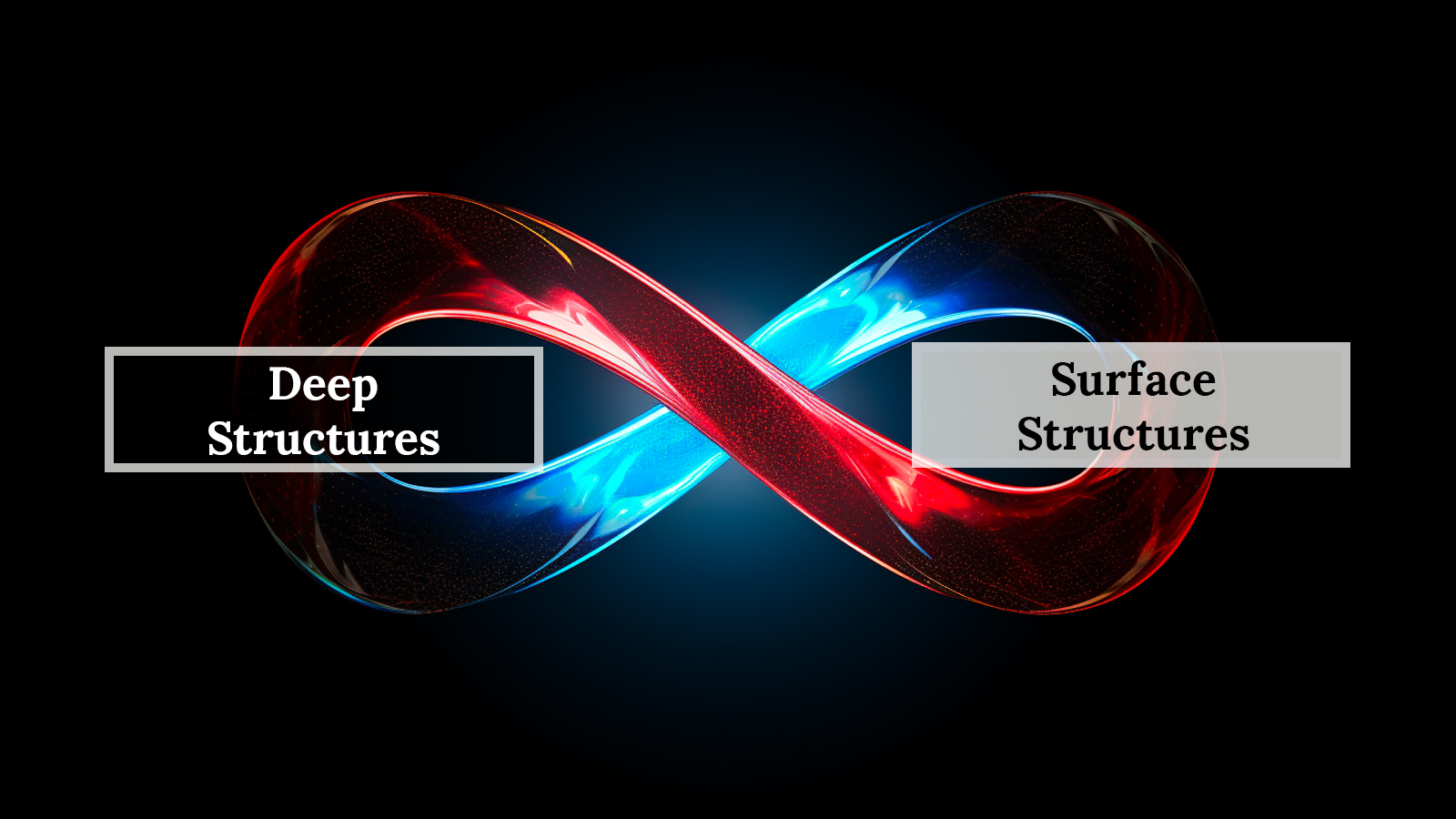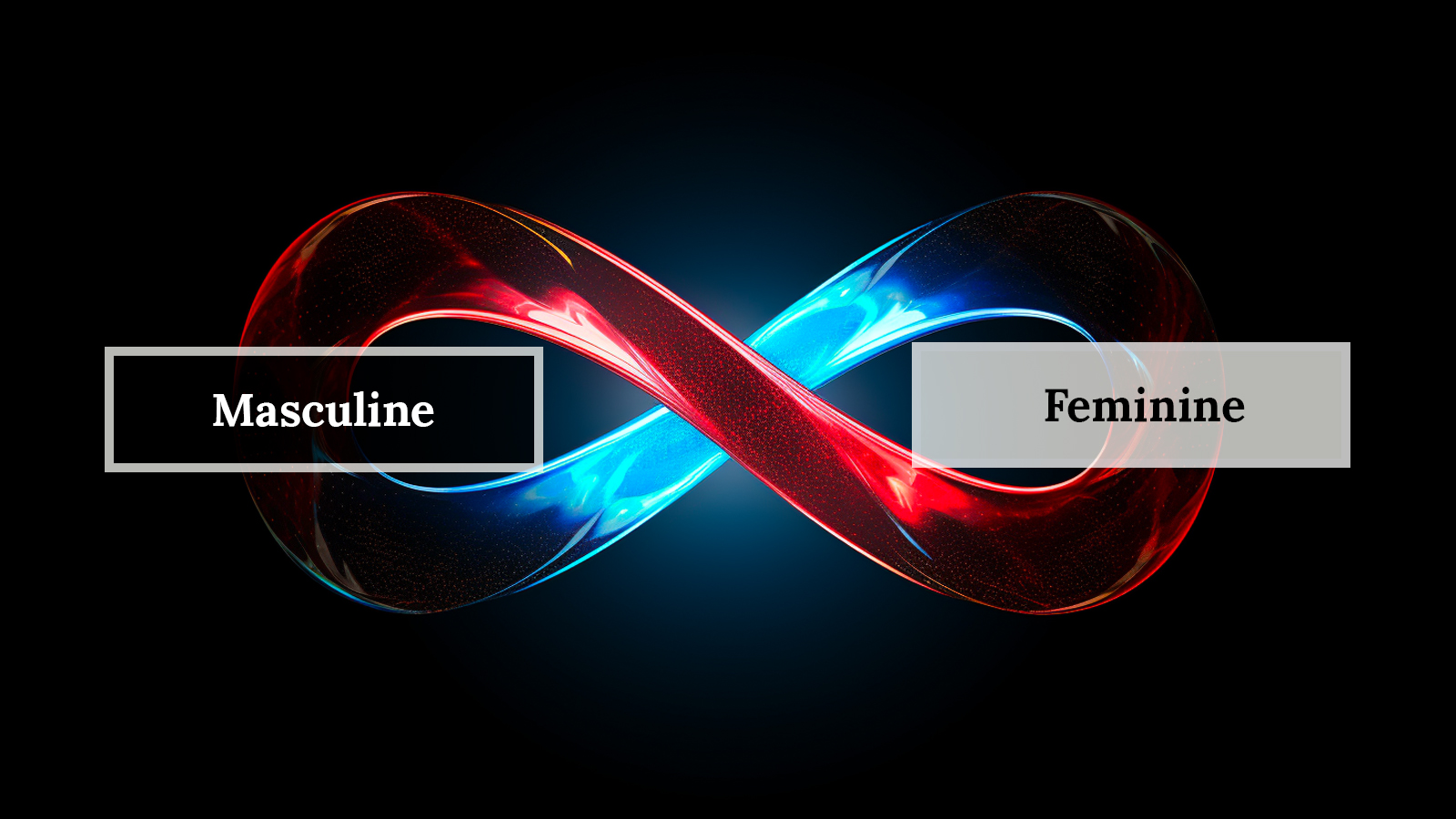|
Polarity Description
|
|
The polarity of Competition and Cooperation represents a dynamic interplay between individual striving and collective harmony, and can be viewed as a harmonic of the deeper core polarity of Agency and Communion. Competition, reflecting aspects of Agency, drives innovation, personal achievement, and progress by motivating individuals to excel and surpass others. It embodies the essence of self-assertion and individual ambition. In contrast, Cooperation, resonating with the Communion aspect, focuses on teamwork, mutual support, and the pooling of resources and talents for a common goal, emphasizing collective well-being and interconnectedness. While distinct in their expressions, both Competition and Cooperation are essential in different contexts, and their balance is crucial for environments where individual talents and collective strengths are optimally harnessed and integrated. |
|
Integrated Polarity
|
| Integral Coopetition represents a sophisticated synthesis of Competition and Cooperation, blending the best aspects of both for mutual benefit. In this integrated state, the drive for personal excellence (Competition) and the commitment to collective success (Cooperation) are not seen as conflicting forces but as complementary aspects of a holistic approach. Integral Coopetition fosters an environment where individual achievements contribute to the group’s goals, and the group’s success, in turn, elevates individual participants. This approach encourages individuals to compete not against, but alongside each other, striving for personal bests while supporting the collective vision. It’s a dynamic equilibrium where the pursuit of individual goals enhances the collective capacity, and the strength of the community empowers individual members. |
|
Disintegrated Polarity
|
|
The unintegrated polarity of Competition and Cooperation can manifest as either conflict or groupthink, highlighting the negative extremes of both poles when they are not harmoniously balanced. On one side, ‘Conflict’ represents the extreme of unchecked Competition, where aggressive rivalry and individualistic pursuits lead to discord, breakdown of relationships, and a toxic environment focused solely on individual gains. On the other side, ‘Groupthink’ embodies the negative aspect of excessive Cooperation, where the desire for harmony and consensus results in conformity, suppression of individual thought, and stagnation in innovation and creativity. This polarity illustrates the pitfalls of leaning too far towards either Competition or Cooperation without the balancing influence of the other, leading to dysfunctional team dynamics and suboptimal outcomes. |
|
Tips for Harmonizing
|
Harmonizing the polarity of Competition and Cooperation involves not only balancing these forces but also gaining insight into our own biases, blind spots, and predispositions. This introspective process allows us to consciously inhabit both poles more easily, fostering an environment where individual and collective goals are interwoven. The following practices are aimed at cultivating self-awareness and adaptability, enabling individuals and groups to navigate the delicate balance between competing and cooperating effectively and mindfully.
|
|
Tips for Integrating
|
Integrating the polarity of Competition and Cooperation, termed Integral Coopetition, is about synthesizing the positive aspects of both poles to create a cohesive and dynamic environment. This integration involves developing practices that encourage individuals to view their personal achievements as contributions to the collective, and conversely, to see the collective’s success as a platform for individual growth. These practices are aimed at fostering a deep understanding of the interconnectedness between individual and collective progress, encouraging a mindset where personal and shared goals are seen as mutually enhancing.
|
Related Media
Holons: The Building Blocks of the Universe
Corey deVos
Join Corey deVos for this fun, fascinating, and far-reaching exploration of one of the essential cornerstones of integral theory — holons, or the apparently endless series of “part/wholes” that fundamentally compose reality as we know it. Accompanied by music, imagery, and animation, this presentation will not only help you better understand what a holon actually is (and what it isn’t!) but also how this understanding can radically deepen your appreciation for the natural world, and for all of the other holonic intelligences that exist alongside us on this planet.
From Polarization to Integration
Ken Wilber and Corey deVos
Ken Wilber and Corey deVos explore some of the causal factors behind so many of the regressive tendencies in our culture and politics these days, from new social pressures coming from social media technologies like Facebook, to the historic evolutionary trends that have formed and informed our major schools of political thought in the first place.
Recommended Training
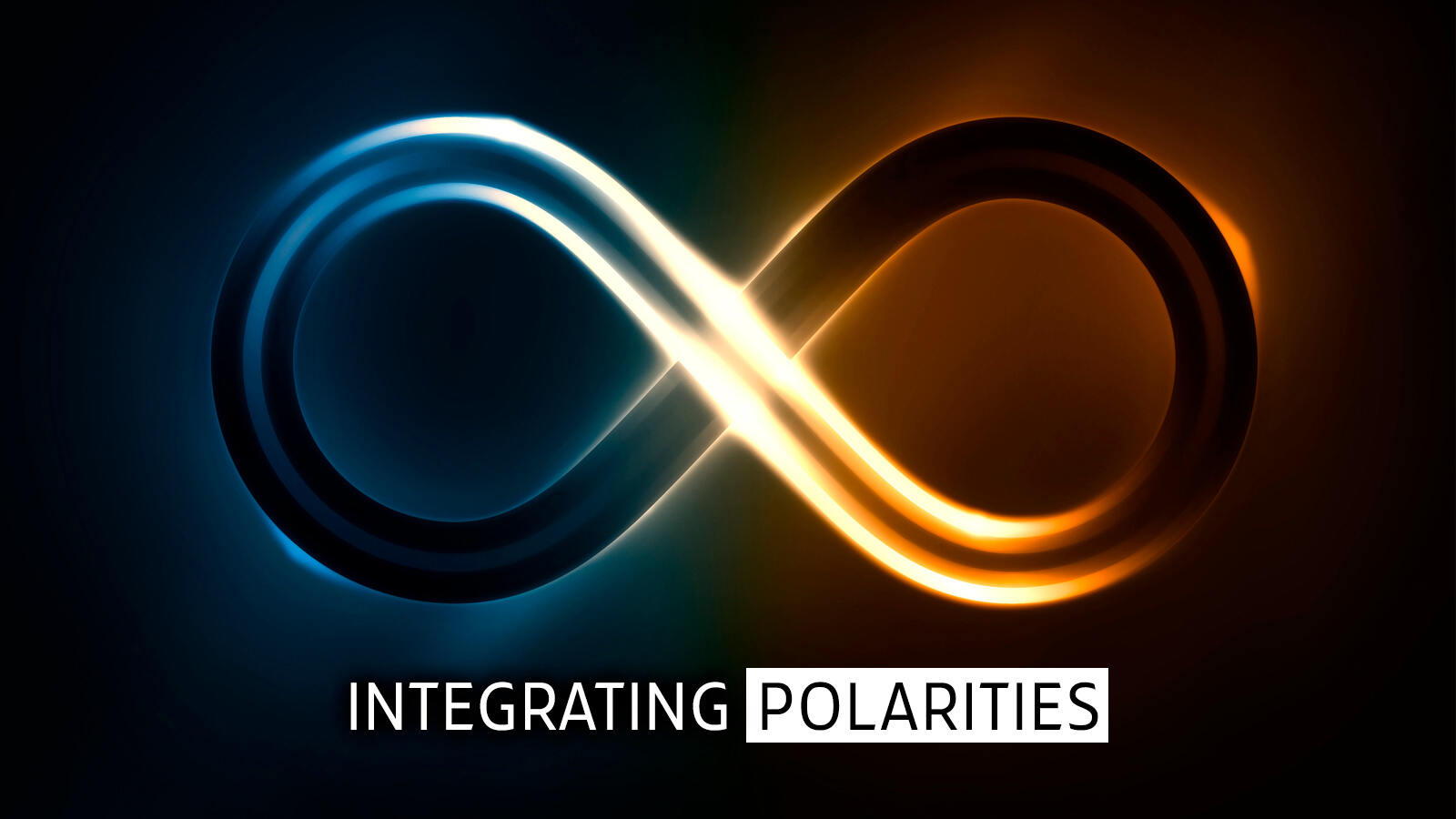
with Beena Sharma
Integrating Polarities is a revolutionary new training program by Beena Sharma, designed to teach you the higher-order thinking common to leading-edge individuals at the integral stage of development. This training is designed to model the higher-order thinking associated with integral stages of psychological maturity, offering you a step-by-step process to help you learn these thinking skills and apply them to your life, your relationships, and your work in the world.
Enroll Now
More Polarity Maps
About Corey deVos
Corey W. deVos is editor and producer of Integral Life. He has worked for Integral Institute/Integal Life since Spring of 2003, and has been a student of integral theory and practice since 1996. Corey is also a professional woodworker, and many of his artworks can be found in his VisionLogix art gallery.

